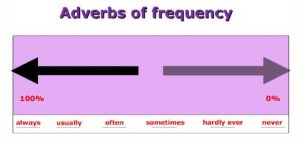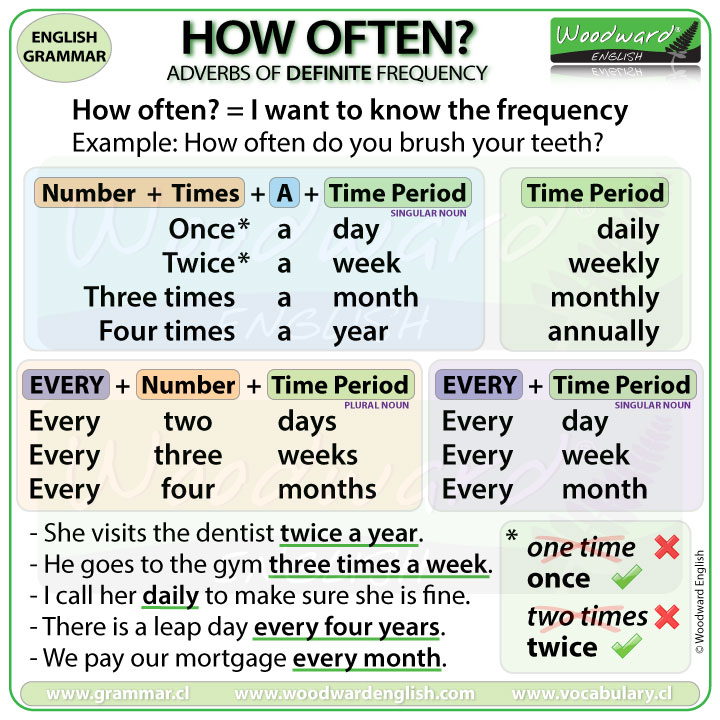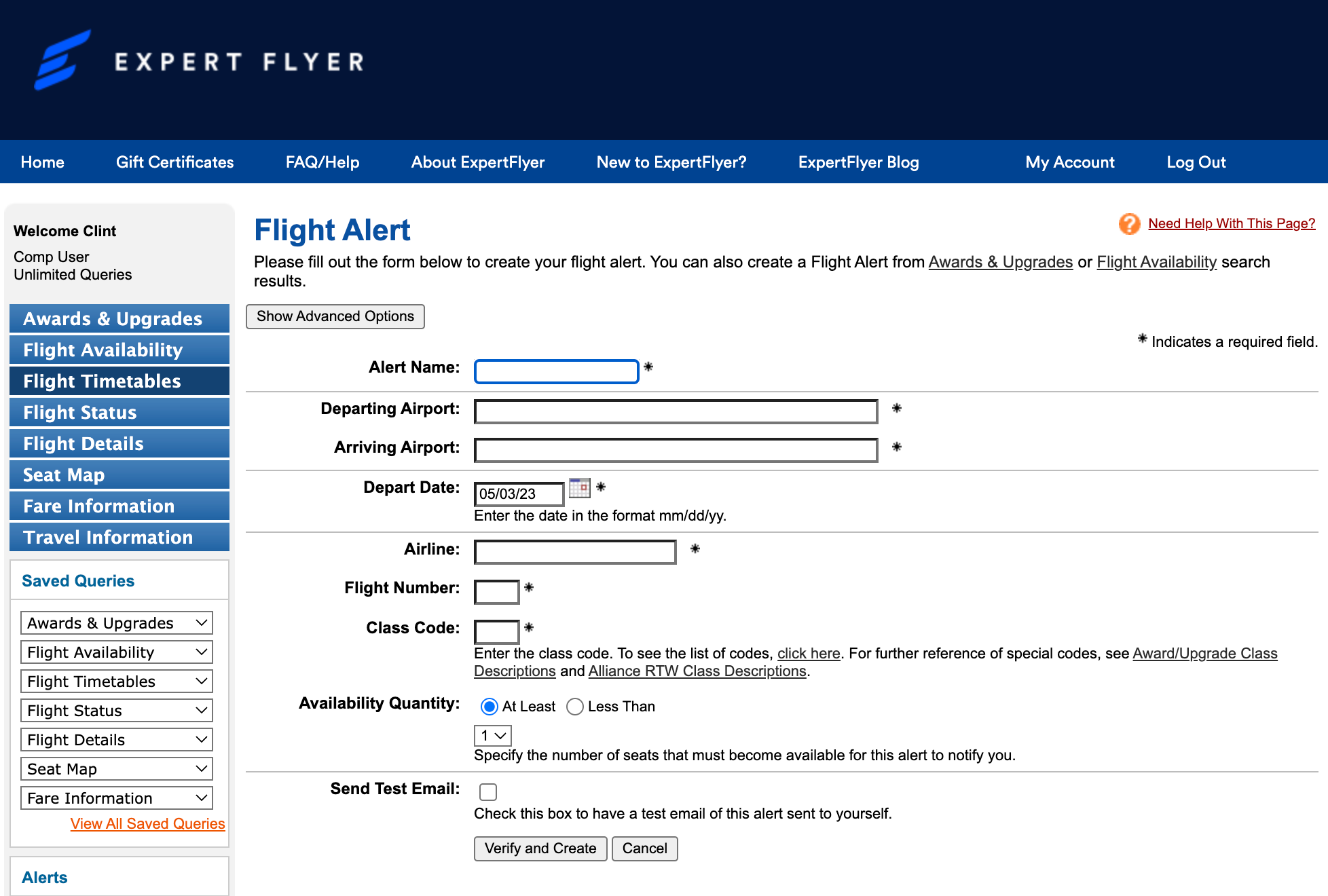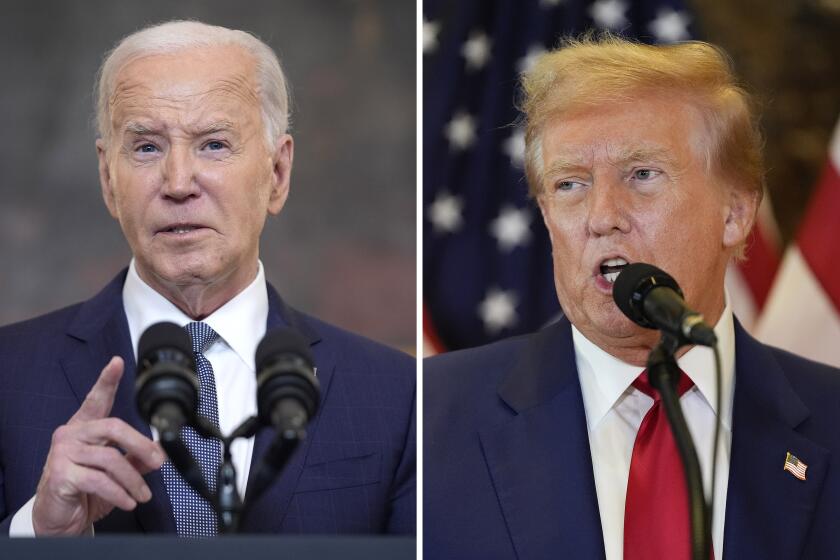What Do Travel Percentages Mean in a Job Description?
Written by Nathan Brunner .
Last updated on December 12, 2023.
“Travel percentages” refer to the amount of time that an employee is required to travel as part of their job responsibilities. Travel percentages include traveling to other cities, states, or countries to meet with clients and attend conferences.
For example, if a job description requires “50% travel,” the employee will be required spend roughly half of their time traveling and the other half working from their home office or the company’s headquarters.
Some jobs may require no travel at all, while others may involve extensive travel on a regular basis. Before accepting a job that involves travel, it’s important to carefully consider whether you’re willing and able to meet the job’s travel requirements.
Tip : Find Jobs on Salarship .

The Implications of Travel Percentages on Work-Life Balance
Different travel percentages can have significant implications for work-life balance.
For instance, if a job requires very little or no travel, an employee may be able to maintain a more consistent schedule and have more time for personal activities or family commitments.
On the other hand, frequent or extended travel can lead to fatigue, stress, and a lack of personal time, which can negatively affect an employee’s mental health and well-being .
Here is a quick table to help you understand how the different travel percentages will impact your life once you start your job:
- 10% travel — It means one or two months’ worth of business trips each year. In my experience, it is relatively easy to endure as it means a few travel days (or sometimes weeks) here and there.
- 25% travel — You will spend at least a quarter of your working hours away from your usual place of work. It amounts to 3 months per year, one week per month, or two days per week.
- 50% travel — It means constant overnight or international business trips for at least two weeks per month or six months a year. 50% of travel is usually mentioned in international business job descriptions.
- 75% travel — You will essentially live out of your suitcase and move from hotel to hotel for nine months per year, or three weeks each month. Most jobs that require you to travel three-fourths of the time are pretty stressful (e.g., high-paying jobs or jobs in the transportation industry ). You may rake in a hefty salary, but the tradeoff is little time for yourself, your family, and your non-work-related hobbies and goals.
On the bright side, companies usually shoulder most (if not all) of your travel expenses, including food expenses, hotel expenses, and transportation expenses.
How To Get a Job That Requires You To Travel
If you’re deadset on getting a job that includes a travel percentage in the description, here are a few tips to keep in mind — whether you’re writing your cover letter or answering an interview question on whether you’re willing to travel or not.
- Highlight any previous travel experience you have. You want to reassure your potential employer that you’re not likely to, say, suffer from jet lag, or commit novice mistakes like forgetting to apply for a visa in countries that require them.
- Be honest about the amount of time you’re willing to spend traveling. The more honest you are about what you want at the job application or interview stage, the more likely you’ll end up with a job that’s a good fit for you.
Tip : 1,267,576 Jobs Are Available on Salarship .
Final Thoughts
Evaluating the time you’ll be traveling in a job description can help you decide whether a position is right for you.
On the one hand, traveling often translates to more opportunities for promotion and career growth. On the other hand, traveling can be stressful and take a toll on your physical, mental, and psychological health.
Ultimately, it all boils down to your personal priorities and values.
Similar Articles
- The Meaning of “Clerical Speed And Accuracy” in a Job Description
- What Does “Internal Candidate” Mean When Applying for a Job
Salarship is a job board that focuses on low-competition jobs.
Our office is at Chemin du Valon 20, Sierre, Valais, Switzerland.
For Job Seekers
For Employers
Quick Links
Business English with Prof Gary
Excel – Expand – Master
Adverbs of Frequency
What are adverbs of frequency.
Adverbs that change or qualify the meaning of a sentence by telling us how often or how frequently something happens are defined as adverbs of frequency .
An adverb of frequency is exactly what it sounds like – an adverb of time . Adverbs of frequency always describe how often something occurs, either in definite or indefinite terms. An adverb that describes definite frequency is one such as weekly, daily, or yearly . An adverb describing indefinite frequency doesn’t specify an exact time frame; examples are sometimes, often , and rarely .
Where do adverbs of frequency go?
Adverbs of frequency show you how often something happens . This can be always = 100%, or never = 0%.
- occasionally
These adverbs can go before the main verb .
The adverbs often, usually, sometimes and occasionally can go at the beginning of a sentence .
- Sometimes I go swimming. / I sometimes go swimming.
- Often we surf the internet. We often surf the Internet.
Sometimes these adverbs can go at the end of a sentence .
- We read books occasionally . / We occasionally read books.
Adverbs of Frequency Rules
These simple rules for adverbs of frequency will help you to use them correctly:
- Always use adverbs of frequency to discuss how often something happens .
- Adverbs of frequency are often used to indicate routine or repeated activities , so they are often used with the present simple tense.
- If a sentence has only one verb , place the adverb of frequency in the middle of the sentence so that it is positioned after the subject but before the verb . For example: Tom never flies. He always takes the bus.
- When a sentence contains more than one verb , place the adverb of frequency before the main verb. For example: They have often visited Europe.
- When using an adverb of frequency in the negative or in forming a question , place it before the main verb. For example: Do you usually get up so late?
More examples
- I always pay my rent (100% of the time)
- I usually get up at 7:30 am. (80% of the time)
- I often read before bed (60% of the time)
- I sometimes visit my mother (40% of the time)
- I rarely go camping (20% of the time)
- I never go to expensive restaurants (0% of the time)

Adverbs of Frequency Exercises
The following exercises will help you to gain better understanding about how adverbs of frequency work. Choose the best answer to complete each sentence.
1. I ________________ late on Saturdays.
a. Get up usually
b. Get usually up
c. Usually get up
2. Jared ______________ late for work.
a. Never is
b. Is never
3. _______________ on weekends?
a. Often do you travel
b. Do you often travel
c. Often you do travel
4. Susan ________________ early for class.
a. Often is
b. Are often
c. Often are
d. Is often
5. When do you ____________ go on vacation each year?
Adverbs of definite frequency – How often?
HOW OFTEN means with what frequency. I want to know the frequency you do something.
The pronunciation of OFTEN
OFTEN can be pronounced in two different ways. By pronouncing the T … OF-TEN or by not pronouncing the T …OF-FEN. (Listen to the difference of pronunciation in the video above) Both forms are correct and depend on where you live.
So we can SAY How OFTEN? or HOW “OFFEN”? BUT, do not write the word as OFFEN !
An example:
- How often do you brush your teeth?
This means I want to know the frequency that you brush your teeth.
How to answer a question with HOW OFTEN
When someone asks you a question with HOW OFTEN, you normally respond with an adverb of definite frequency . This means it has a definite or exact frequency.
And how can we express this? We use the following structure. Number + times + a + time period (this time period is a singular noun)
- Three times a month
- Four times a year
BUT there is an exception to this rule with the first two numbers.
We do not say one time , no, we say ONCE . And we don’t say two times , no, we say TWICE .
- twice a week
- three times a month
- four times a year
Notice how the Time period is a singular noun… Day, not days. Week, not weeks.
Some examples:
- He has lunch with his mother once a week .
- She visits the dentist twice a year .
- I brush my teeth three times a day .
- Mike goes to the gym four times a week .
EVERY + a time period
Another common way of expressing frequency is by using:
Every + a time period (note that this time period is a singular noun)
- Every month
- Every year.
There is no plural S at the end of these words.
Instead of saying Every day , you can say Daily … be careful with the spelling of this word.
And of course you can say weekly and monthly too.
With the word YEAR, it is a lot more common to say ANNUALLY instead of Yearly.
Look at these examples. We can say…
- We pay our mortgage every month … OR
- We pay our mortgage monthly.
- The zoo is open every day … OR
- The zoo is open daily.
- I call her daily to make sure she is fine.
- The subscription needs to be paid annually . (which means every year.)
EVERY + number + time period
Another possibility is using: EVERY + number + a time period
In this case, the time period is a plural noun
- Every two days
- Every three weeks
- Every four months.
Some example sentences…
- There is a leap day every four years. (February 29 th is a leap day.)
- I have to take one tablet every eight hours.
- The magazine is published every two weeks.
In British English a period of two weeks is known as a fortnight.
- The magazine is published every fortnight.
Let’s practice!
Answer the following questions about your life using adverbs of frequency.
- How often do you wash your hair?
- How often do you go to the dentist?
- How often do you have English classes?
- How often do you eat fast food?
- How often do you get a haircut?
- How often do you go to a restaurant?
English Summary Chart

- 934k Followers
- 214k Followers
- 104k Followers
English Course
Adverbs in english.
- Adverbs of Frequency
- Adverbs of definite frequency - How often?
- Every day vs. Everyday
- Very vs. Too
- Too + Adjective + Infinitive
- Enough with Adjectives, Adverbs, Verbs and Nouns
Pin It on Pinterest
How often: meaning and grammar rules
Learn through the article!
Pass a language test
Check the results
Subscribe to reach fluency!

The phrase "how often" seems quite simple, but it holds a significant role and function in English communication, allowing speakers and writers to inquire about frequency, habits, and routines. In this guide, you will explore the nuances of using "how often," uncover its various functions and get clear rules to help use it effectively in your writing and conversations.
Meaning of how often
At its core, "how often" is an interrogative phrase used to inquire about the frequency or regularity of an action or event. It allows speakers to specify a number of actions or events within a specific time frame, providing valuable insights into habits, routines, and patterns.
The main functions of how often
One of the primary functions of "how often" is to ask questions about the frequency of an action . For example:
- How often do you go to the gym?
- How often does it rain in this region?
By using how often questions, individuals can gain an understanding of someone’s habits or routines . This can be crucial in various contexts, from personal conversations to market research. For instance:
- How often do you check your email?
- How often do customers visit our website?
"How often" can also be used to talk about expectations or desires regarding the frequency of an action . In such cases, people usually discuss preferences or ideal scenarios. Here are some examples for better understanding:
- How often would you like me to provide updates?
- How often should children brush their teeth?
The phrase "how often" is a powerful tool in English communication. Whether used in casual conversations, market research, setting expectations, or other situations, mastering the use of "how often" enhances clarity and facilitates effective communication across various contexts. By understanding its functions, you can speak precisely and convey your ideas with clarity.
Rules for using how often
In interrogative sentences, "how often" typically precedes the auxiliary or main verb if there is no auxiliary. Here is an example:
- Incorrect: Do how often you exercise?
- Incorrect: How exercise often do you?
- Correct: How often do you exercise?
In answering ‘how often’ questions, it’s essential to specify the time frame to ensure clarity. This can include time expressions such as "every day," "once a week," "monthly," or specific time intervals. For example:
- Question: How often do you go jogging?
- Answer: I go jogging every week.
- Question: How often do you visit your parents?
- Answer: We visit our parents monthly.
The tense used in the question should match the action's occurrence. If asking about a habit or general frequency, the present simple is used. For past actions, the past tense is appropriate.
- Present: How often do you go to the gym?
- Past: How often did you go to the library last year?
You can also form negative questions with "how often" to inquire about the lack of frequency. For instance:
- How often don’t you wake up early?
- How often don’t you eat breakfast?
This structure, though less common, can be useful in certain contexts but may require careful intonation to maintain clarity.
Using how often for indirect questions
Indirect questions are not asked directly to the listener but are embedded within another statement or question. They typically do not follow the standard question format and do not end with a question mark when written. Indirect questions are a softer, less direct way of asking something, often used in formal settings or when the speaker wishes to be especially courteous. You can identify them when sentences start with such phrases as:
- I would like to know…;
- I'm curious to know…;
- I'd like to find out…;
- I'm interested to learn…;
- It would be helpful to know…
The sentence structure of indirect questions with “how often” differs from direct ones. In such cases, “how often” is placed in the middle of the sentence. It helps to make the inquiry more polite, allowing speakers to use it in formal communication. Here are some examples:
- I was wondering how often you go to the gym.
- I'd appreciate it if you could tell me how often you perform system backups.
- I'm seeking advice on how often it's advisable to review and update a personal budget.
Using "how often" in indirect questions is a valuable skill in English communication. It enables you to make inquiries about frequency in a respectful and culturally sensitive way.

‘How often’ is a very important phrase for surveys, research, discussing habits, routines, etc. People use it daily in all spheres of life, from healthcare to customer service. By understanding its role, function, and rules, you can confidently engage both in casual conversations and formal meetings.
Make your next step to fluency with Promova

British Council Portugal
- myClass Portal
- Student Portal
- Show search Search Search Close search
Adverbs of frequency in English
By colm boyd, 31 jan 2020 - 15:12.

How often do you study grammar rules in English? Do you do it regularly? Or hardly ever? A fundamental aspect of learning any language is learning to express how often you do things. In English, as in Spanish, we generally do this by using adverbs of frequency:
a. You’re always complaining!
b. I’m very busy so I hardly ever have time to watch TV.
c. Easter sometimes falls in March, but it usually falls in April.
When do you use this grammar area?
Adverbs of frequency allow us to express how regularly something happens. Our recent overview of English grammar spoke about how an adverb can have various functions. For example, it can describe a verb (“he drives quickly ”) or it can describe a whole clause (“ Luckily , he escaped from the accident uninjured”).
Adverbs of frequency also have these functions but, as their name suggests, they express how often the verb happens (see sentence a above) or how often the entire clause occurs (see sentences b and c above). An adverb of frequency is almost always just one word, with the exception of the adverb “hardly ever”. How do you know which adverb of frequency to use? That depends on the level of regularity that you want to express. Use the table below to help you.
What are the rules for the structure?
The most important rules related to adverbs of frequency are related to using them in the correct position in sentences. There are three common positions, depending on the type of verb:
with verb "to be":
- After do verbo "to be".
- Example: You are always late (Chegas sempre tarde).
with auxiliary and modal verbs:
- After the modal or auxiliary verb
- I have often considered becoming a vegetarian ( Algumas vezes já pensei em ser vegetariano).
- I can never remember his name! (Nunca me lembro do seu nome do nome dele!).
Other main verbs:
- Before the verb.
- I usually work on Tuesdays (Normalmente trabalho às terças).
These rules for adverb position may seem a little random. Why put the adverb after the verb “to be” but before all other verbs? The reason for this may be related to pronunciation. When a fluent English speaker is talking they almost always contract the verb “to be” and auxiliaries (so “You are late” becomes “You’re late”; “I have considered” becomes “I’ve considered”; etc.). This means that an adverb before the verb “to be” or before the auxiliary would interfere with the contraction. And so the adverb appears after these items. Read more about connected speech in English pronunciation.
Exceptions and variations
As in Portuguese, adverbs are not the only way to express frequency. It’s also possible to use multi-word expressions, especially ones which incorporate the words “every” or “a”:
- Bradley goes to French class every Tuesday and Thursday O Bradley vai às aulas de francês todas as terças e quintas-feiras
- Tanya travels abroad at least three times a year A Tanya viaja para o estrangeiro, pelo menos, três vezes por ano
- Sophie phones her grandmother once a week A Sophie liga à avó uma vez por semana
Note that these expressions of frequency usually come at the end of the sentence or clause.
While there are general rules for the correct position of adverbs of frequency in sentences, certain adverbs can break these rules. When the speaker wants to emphasise the adverb, it’s common to place it at the beginning (or even at the end) of the sentence. This is particularly common for adverbs which suggest “middle” frequency, like usually , often , sometimes , etc. Consider the sentence:
- I sometimes work on Saturdays Às vezes, trabalho aos sábados
This is correct and follows the rules outlined in the previous section. However, it’s also possible to say:
- Sometimes, I work on Saturdays
The function of putting the word “sometimes” at the start of the sentence emphasises that this fact might be a little surprising - perhaps we would have imagined that the speaker always had Saturdays off. (In Portuguese, to emphasise, we can use the phrase to start the sentence, but with a special emphasis on " Às vezes ", as if to say: Trabalho alguns sábados ).
LearnEnglish Teens has more useful information on adverbs of frequency and their positions .
What common mistakes do Lusophone speakers make with this grammar area?
As explained above, certain adverbs can appear in more than one possible position in a sentence. However, it is never possible to insert an adverb between a verb and its object:
Frequentemente, leio romances de ficção científica >
- I read often sci-fi novels. ✗
- I often read sci-fi novels. ✓ (Or, for emphasis, use "Often, I read sci-fi novels" or "I read sci-fi novels often").
The adverbs “never”, “rarely”, “seldom” and “hardly ever” have a negative implication. This means that they must be used with verbs in the affirmative. If the verb was in the negative form, the sentence would contain a double negative and this is not possible in English:
Agora nunca compro CD >
- I don’t never buy CDs nowadays. ✗
- I never buy CDs nowadays. ✓
Because the adverb “never” has a negative implication, it only describes things which have not happened. To describe things which really have happened, we use the adverb “ever”:
É o melhor filme que há vi >
- It’s the best film that I have never seen. ✗
- It’s the best film that I have ever seen. ✓
When using the expression “have to” to express obligation, remember that the “have” in this case is a verb, not an auxiliary. This means that the adverb usually comes before it.
Tenho sempre que dormir a sesta depois de uma refeição abundante.
- I have always to take a nap after a big meal. ✗
- I always have to take a nap after a big meal. ✓
Are there any famous examples?
- I will always love you - In this famous song from the 1990s, Whitney Houston told her lover that he will always be in her heart.
- We are never (ever ever) getting back together - In her 2012 worldwide hit, Taylor Swift told her ex that she never again wants him as her boyfriend (here the words “ever, ever” just emphasise the idea of “never”).
- Tomorrow never dies - This 1997 movie tells the story of James Bond trying to save the world by chasing an evil criminal who wants to start World War Three. In Portuguese, the title of the movie was “007 – O Amanhã Nunca Morre”.
- Forrest Gump - In this 1994 film, the main character Forrest says the famous line “My mama always said that life was like a box of chocolates - you never know what you’re going to get”.
Each of the sentences below contains one mistake. Find the mistake and correct it.
- I always am happy when I finish work early.
- Susan has been never to Thailand.
- Gerald needs to take his medication three times for day.
- Always I try to arrive at the office before 9 a.m.
- It doesn’t hardly ever rain in Beja.
- I eat sometimes muesli for breakfast.
- I always don’t remember my keys when I leave the house.
Answers (a long way) below
- I am always happy when I finish work early.
- Susan has never been to Thailand.
- Gerald needs to take his medication three times a day.
- I always try to arrive at the office before 9 a.m.
- It hardly ever rains in Beja.
- I sometimes eat muesli for breakfast (or, for emphasis, "Sometimes, I eat muesli for breakfast" or "I eat muesli for breakfast sometimes").
- I don’t always remember my keys when I leave the house (Or “I never remember my keys when I leave the house.”)

How long – how often
For – since.
We use for to say how long How long have you been waiting? Oh not long. Just for a few minutes. They lived in Spain for nearly ten years. We use since to say when something started. I’ve worked here for nine years – I’ve worked here since 2004
From...to/until
From ...to/until are used to say when something starts and finishes: The lessons are from Monday to Thursday. We will be away from the 13th to the 20th of September.
The most common adverbials of frequency are: always, never, normally, occasionally, often, rarely, seldom, sometimes, and usually .
We usually put adverbials of frequency in front of the main verb: I often spend the weekends at home. I have never had so much fun. But they usually come after the verb to be: He was always tired after work. She was never late.
The adverbial a lot means 'often' or 'frequently'. It is placed at the end of the clause. We go to the cinema a lot. But it is before another time adverbial. We go to the cinema a lot at the weekend.
We use much with a negative to mean 'not often'. We don't go out much during the week.
How often – ever
We use how often or ever to ask about questions of frecuency. How often comes at the beginning of the clause. How often do you go out? Ever comes before the main verb. Do you ever work late? Have you ever been to Japan?
For longer frequency phrases we usually use them at the end of a clause. We go to the cinema twice a week. She goes to her yoga classes every day.
Lesson by Tristan, teacher at EC Malta English school
Now choose the correct adverbial/preposition for the following:
- 1. I’ve been trying to call you _ the last two hours. until for since
- 2. He goes out to the pub _ . often usually a lot
- 3. The night bus works _ . from eleven to four in the morning for eleven to four in the morning for eleven since four in the morning
- 4. I haven’t seen her _ three months. for since from
- 5. Sarah is _ very punctual. Something must have happened to her. ever sometimes usually
- 6. Have you _ seen a hurricane? ever often usually
- 7. How _ do you go to the gym? usually long often
- 8. We seem to eat at Italian restaurants _ . a lot often rarely

- Lesson Index

Seven Letters
English language Schools
Recommended Pages:
- How to learn English
- A cool trick for memorizing sentences
- Don't just learn. Overlearn.
- The 3 biggest improvements you can make to your English writing
- The key to understanding natural spoken English
- 5 steps to achieving your New Year's resolutions
- 8 reasons why your English isn't improving
- How your brain learns English (and how it doesn't)
- Infographic: How many words do you 'need'?
- The problem with language learning "levels"
- Where do I start?
- Never tell yourself that you "know" an English word or phrase.
- How to memorize the phrases
- Why Memorize? My theory of "hook phrases"
how often do you (do something)
There are two meanings of the question "how often do you ___?" The first is the literal meaning. How many times per month, per year, etc. does something happen? For example:
A: How often do you work out? B: Probably two or three times a week.
The other meaning is a rhetorical meaning. You ask "how often do you ___?" to express that something doesn't happen very much. Here's an example of that use:
Wow, your son actually keeps his room clean without you asking? How often do you hear about that?
In the example at top, the speaker is saying that people don't often get the chance to move to another country. That's why the speaker is going to take the job.
This phrase appears in these lessons:
- “How often do you get the opportunity to move to another country?”
Featured Articles
- How to Start an Online Business in 8 Steps
- When can you use "play" to talk about a sport?
- 15 ways to say "Goodbye" in English
- Casual speech
Recent Comments
Follow phrasemix.

- About PhraseMix
- Terms of Service
- Privacy Policy
PhraseMix Premium
- Subscription Pricing
- Latest Lessons
- Video Lessons
- Lesson Categories
- Lesson Index
Communicate
- Discussions
Copyright © 2024 , All rights reserved.

7 Free English Lessons
d elivered to your inbox
Subscribe Below:

Want to Improve your English Fluency?
Get thousands of Premium English lessons for only $9.99!
No Subscriptions. No monthly Fees.

- All Lessons
- business english
- comprehension
- culture & tips
- expressions
- pronunciation
English Grammar – How Often? – ALWAYS, USUALLY, OFTEN, SOMETIMES, NEVER
Test your understanding of this English lesson
366 comments.
ALWAYS thanks for yuor lessons
im very happy for your lessons thanks you
thank you so much for everytings you are amazing sir THAANK YOUUUU =)
It’s awesome lesson.I always watch your lesson.thanks so much.
I always watch EngVid
Thanks for your lesson Alex.
Thank teacher Aleax for this explantion to the adverbs freqency , they become easier after your explanation to them and its an interesting lesson .
I am really impressed by your lectures sir. You have clarified all the doubts. thanks alot
thank you very much.I always watch your lessons,they are very useful.i hope with your help i will master my english
First of all, thank you for these lesson…amazing. I have a question about the pronunciation of the word “often”. My english teacher in Italy said I can say this word in two “version”: one ofTen, where i said the T between f and e right? Also i can say “oFFen” where the T became a double F, it’s correct both forms of the “Often” pronunciation?
Thank you so much and have a nice day. Cheers from Italy!
Simone, both pronunciations are correct. It just depends which part of the world you are in. Thanks for the comment.
OfTen is good in North America…
hi Alex, i’m Annunziato from Italy.. i live and work in Dublin from 3 months. My purpose is to learn the English language.. thank you for your important work!
Hello , I’m new student. Let me join with all of you to learn english. Bz my english skill is still not good. I’m still on basic to learn it. Ok thk …
hi ,thanks for ur help
it is a fantastic website
its very helpfull thank you
Thanks Alex.Your videos are always simple and superb.
I usually take quiz of engvid… Always thanks to you…….
alwese your lasson usefl for us
thank you vrey much
I always watch these lesson on Videng.com I enjoy your lessons , Alex Thank so much! God bless you on and on!
hi Alex I am very empress for all your lesson.It,s really suparb.
Very nice I like it.
tanks for your lessons alex they helped me verry much because i will have an exam next week and i needed this lessons again,thank you
its very usefull site for english learning…
i always thank u for this lesson alex sir.
Good lesson. But because it’s a beginner lesson, Alex should have emphasized that the adverbs come before the verbs. Beginners usually confuse this unless told.
hi my beloved friend… you have commented that adverbs always come before the verbs but according to my knowledge ,it is not actually correct.I have shown an example here where an adverb takes the place after the verb.The sentence looks like the following-“I can run fast”-here as you can easily point out that “fast” is the adverb but it has come after the main verb “run”.So you can’t say that everytime words which are actually adverbs takes the positions before verb.
it is fantastic wed site Alex,Thank you,Thank yuo,Thank… you wed site is tha Best.
This is very best & the easiest way to learn & teach english
Alex is the best
Hi Alex,thanks for your time.
thank a lot l never leanning English with language owner before and I like it verry much . I wish this leanning can make me speak english. thank……………
thank you alex for your lesson…^^
thanks alex you are great.i understod it very esaly.
hi,thanks for your help.
thanks Alex
Hi Alex and teacher`s thank you for spend the time we us, Thank you,Thank you,Th..u…
Thanks for your work.
hi alex. I’m always waiting for your videos: I like them very much. Is your pronunciation of “often” with a strong “T” because of your accent (maybe canadian)? In Italy we say “ofen”. I hope to see you soon.
Both are correct. I say it with the “F” pronunciation because of my Canadian accent.
Thank you very much!I learn more from it.
hello alex, I am very grateful, tahnk you once again.
that really help . thinks a lot > i think i will learn english by this way . thinks again .
Alex, Thank you for your job, is important to know there is person who care for otheres persons
thanx man it it great gob
thanksss sir it was very helpfull……. thanks alot again
thank you teachers for this lessons and more lessons please
thanks for the explanation. Great page.
Hi Alex I am from India my name is santosh, I’m always waiting for your videos, You are really great because the way you teach it’s very helpful us, Thank you so much and thanks alot again.
Could you help me? Quiz: Which sentence is incorrect? That boys is wearing a red hat. Answer: We must say “That boy,” because “that” is for single objects that are far away from us. I don’t understand, there is word “boys” in the sentence. Where is tric?
thankssssssss
thanks,to you alex,for teaching english,help me more
Ok Alex , Thanks for the explanation of adverbs of frecuncy …regards
thanks 4 such information
hai Alex i really love ur lessons
Can I also ask, write or say… “I go to the store sometimes.” ? Using the adverb of frequency in this case at the end? Is that bad grammar? Please, help.
thanks alex
Wow What a great learning site.
You’re greatest teacher :)
hi sir how are you.i hope you are fine .good working.
alis thank u very much…
Alex, could you explain me the difference among bound/certain/sure to?
thanks gabry
It is very helpful Alex. Ela kiri
thanks,it is very nice
thank u alex
thanks, very very nice
you are the best alex ^_^
Hi Alex, Always I need your lessons Thank you.
You are the best…….
thanks you very very nice
thankkkkkkkkkk u sirrrrrrr ….
thanks alot.
Thank you for your elightening lessons
Nice explanation. I don’t think your language level is appropriate for a begginer, though.
thank you so much! i love your teaching. your prouciation is very easy for me to understand. have a nice day! cheers from vietnam.
!Good Lesson! Thank’s a Lot Alex!
Thank you very much, Alex. Thanks to you, I could figure out the difference among those adverb.
thank you techar , Great lesson
wonderful job.
Thanks you very much for your lesson. It is very helpful for me
Hi,Alex i trying to learn english by your lesson . best regards
Engvid.com thanks a lot. The lessons really help me a lot, specially on how to improve my grammar.
thanks a lot
Thank you very much for wonderful explanation.
thanks alex :-)
Thkns a lot Mr. Alex,, welldone
Good teacher….thanks for being that clear
hi mr alex thank u this web site is a wonderfull i am learning grammar engilish i so wondering this web site i love u teacher
thanks rebecca!
hello alex, good class,,,, i enjoyed it… you are good teacher…
it is very helpfull and effective topic for us. thank you very much but i want to know that how can i change complete sentence of my language because oftenly we constrait on vocab but we cannot make correctly the complete sentence, are you doing something regarding the matter.
have a nice day
Thank you for your lesson.
my question is : when do we use generally,occasionaly ?
As the result of your teaching, I got 5 correct out of 5 on the quiz. You made English easy to understand and fun to learn.
Thanks a ton Alex.
Thought I’ve attended a intermediate ESL lesson in the a college, I always could learn some thing from this website.
could u use he or she ,please.
hey i want to speak english with someone if anyone is interested to talk me in english. thanks regard asad my id is [email protected]
hi u choose a best way for learning English. so add me at yahoo messenger i hv just yahoo ID.
really i understand from you very will and also from Ebecca
hi alex! i’ve got a question. how about the negative form? which is the correct one? I don’t usually go to the cinemma or I usually don’t go to the cinemma? thanks in advanced.
Dear Alex, Thank you so much for this important lesson. Now it’s clear how to use adverbs of frequency.I will look forward for more of your lessons in English grammar.
haloo i am ismail from egypt i love english
i want leason 1 to english hear to egypt no english hear :D
halp my !!!
Hi sir Alex, thanks a lot I’m Reynaldo from Philippines you know its very difficult to me to write an English sentence, I could understand it.. but I didn’t write it in correct grammar, I mean I’m confuse my grammar… please help me sir alex plz create more lessons. thanks god bless…
Thank You Alex
thanks for teahing me this.
your videos help me a lot…
hi.. sir.. i’m irvan from gorontalo, indonesia. i’m student of uiversity. i hope you’ll give more lesson. thank you..
THANKS. I ANDESTAND HIS VIDEOS .YOU HAVE A SYSTEM VERY GOOD. I WANT TO KNOW : MUST, MUST NOT,CAN’T,DON’T HAVE TO. THANK’S YOU SO MUCH.
thanks mr.alex
ADD MORE QUIZ
Thanks lot ALEX .. I am always saying thanks to u…………
Thanks so lot.I Very happy when see this link on internet
can i ask ‘How alway…..?’ instead ‘How often?’
very good explanation
Thanks a lot Alex really we need more please don’t forget i need more about the passive causative if you please
alex u r great teacher thankkkkkkkkkkkkkkkkks alot
I usually choose your lesson,thanks Alex.Keep going on!
That’s great… I understand now..
I AM NEW FOR TAKING YOUR CLASS BUT TONIGHT I UNDERSTOOD MUCH WORDS
THANKS ALOT HAPPY NEW YEAR JAN 01 2011
Thanks!!! Alex
Can you do a lesson on the difference between, fragment sentences and complete sentences?
i usually see you thank you alex
I usaully watch the EngVid video, And love the lessons very much all the time that I watch I 80% can understand, thank Alex very much, You are my first techer on the Internet. At last, I would like to say thanks very much to EngVid.com. Bye
hi sir i’m manmohan bamra from WINNIPEG MB.I hope u will give more lesson i came to the 1 and half month in winnipeg.and i usally see u thank u.
hi Alex, thanks.
Is Always more “everytime” or more “all the time”? I feel like it is more next of kin with “everytime” than “all the time” I didn’t look it up in a grammar, but i will…
Alex said all of the time, not all time my fault,
perhaps i don’t like to pay my rent, but if i say, “i always pay my rent” and then i think “i pay it, all of the time” i don’t feel fantastic. Does “always” stay for “everytime that is needed or necessary” to do something, in this case?
However, priority N° 1, this website is fantastic, and so are the teachers.
sir,u r pronouncing T in often,is it correct?t is silent or not?
Thank you for the lessons.
Hi everyone . I hope you have good time with learning English here . hhhh^_^ I always visit ENGVID for watching English video , and enjoy ,too . and I want to thank all teachers and student here . ————-take care————— ^_^
i like this lesson…
thanks alex!!It is very,very helpfullesson.
i usually learn with you…Thank you very much
thanx alex, it workssss i means thinking always,usally,often,sometime,never, on time scale.
thank you for your teaching
I can’t thank you enough. You’re very good teacher
Hello teacher Alex. I always thanking you for teaching us. I do really enjoy watching your video lessons. Your a great teacher and i easily understand all your lessons. Thanks a lot teacher alex
thank you Alex “seldom” and “rarely” , how about these?
hi..alex….thanks for the lesson
hi sir. actuall: I OFTEN ATTEND YOUR CLASSES? HOW IS THE SENTENCE? IS IT CORRECT? IF THIS CORRECT I WILL NEVER LEAVE YOU I WILL ALWAYS TRY TO KEEP LIVE WITH YOU. HAHAHA BY HAVE A NICE TIME
thanks.. Ur lessons r most imp for improving my English..some of the grammaticality mistakes removes day to day by listening Ur lessons…thanks again..
Hello… I could find many good lessons. Thank you..
hello.. thank u..
good class, God bless to you
Thank you Alex tis is very good lessens
good lesson
I really appreciate how you teach.Keep it up and i will continue to follow you in next lessons.Thanks!
now of then, I always take your lesson at 7:00 am
thanks buddy !
Q: Do you ever forget to answer letters? A1: Yes, I sometimes forget to answer letters. A2: No, I never forget to answer letters. >What if my answer is just once only. How can I answer? Thank you.
very very good for me
alex..very very good teacher, i listen carefully the way you teach, u helped me a lot….thank you for giving such an example…
i am eygyptian , thanks alot but can you tell me the differance between always,usua,oft,some,never but via number(2-3 times) for ex not by %
Hi Alex you did not replay on my question which was (can i say that always=7-8 times i do that /usually=5-6 times i do that/sometimes=2-3 times i do that )for all things…………….. please more explain
alex you´re great!!! just keep on doing this lesson and if you do any about syntaxis i´ll love u for ever!!! :D
Hi again Mr. Alex, this time I just want to say that my English is better now, but the problem is no friends can be asked to be a partner of speaking. That I mean to test my ability in speaking English, whether it has been good or not yet. Do you have any suggestions for me????thks.
THANK YOU FOR LESSON
thank you for lesson and your help…
Congratulations gyus for that incredible website!!!
Cool Alex, your examples are always very simple and understandable. Very nice.
hi,Mr.Alex your teaching style good…
sir alex pls give us example or explain the words “rarely” and “seldom”. Im confusing. Then the synonysm, acronyms, antonyms.
thanks for the lesson but sir i’m really confused to using tenses please give me some simple example to understand tenses.
Mr.Alex always help us. Thanks Alex
very thanks to you
thank u alot.it is very useful for me
Alex, thanks for the understandable lesson. You are very good teacher!
Alex your teaching is simply super and to under stand
Thanks for this useful lesson.you are e good teacher .
thank you very much . the explanation is very clear . and I have a problem on learning English : would you please tell me the difference between the two words maybe and perhaps , they’re the same meaning of diffrent from each word . GOG BLESS YOU
Thank Professor Alex. Now I understood the lesson well, but I have a question;What about regularly
Thanks Alex I always enjoy your lessons, very helpful for those who often get confused using these adverbs of frequency correctly. Keep up the good work.
Thank you EngVid.com
I useful way to explain adverbs of frequency is to have students place their hands in the prayer position. Together the hands represent never a little wide apart – sometimes; a little wider still for often – usually – and at the widest to represent always. My students seem to like this idea for expressing how often they do something, either in a defined period of time, for example a day, week etc or in general. Hope this is of use.
What about regularly
thanku sir……
Thanks a lot for this lesson is very important
ummm they using after or before the verb and none?
I could find many good lessons. Thank uuuu :p
Thankyou sir.
hi i am a mother from jordan it was a lesson for my 9 years daughter but she didn\t understand at school and i try to find something helpful and yours was so helpful and she said i wish he is my teacher thank you Rawan and my daughter Sham
Excellent job sir thanks a lot for explaining in such an easy way
thankyou , i anderstend very good . You are grejt
dear sir, i am gajendran from india… i have one doubt in English grammar is that how to use “else sentences” in a conversations….. plz kindly clarify….
it is very interesting, I was looking for a better explanation about adverbs of time and this is perfect. tks
thnk you so much
good lesson…thanks alex
alex sir, thanks for ur lessions
2 – Rami hates playing basketball because he is too short. He ______ plays football. always sometimes never often What is the correct choice? please help me.
thank Alex. very interesting way of teaching. Don’t forget to answer my qestion.
thank alot.
Thank Alex,can you teach me more? Thank you very much=]
Thanks Mr. Alex!
Merci for your lesson. Nice, nice!!
this is the first video of urs that i saw and it is really awesome. Clear and concise :) thanks a lot
thank you very much alex for ur nice class
Thanks for the lesson, i really need it for my trainee ship to day.
Thank you Mr.Alex
I’m so happy for this lesson
thanks so much for your nice lesson I`m so happy
Im very zogh zade from u
well done alex.. tnx!
simple and easy thnx
i like the test.
Thankyou alexis
I always thank you to gave us these information and more knowledge.
thnx Alex but how about Already?thank you in advance
tell me which sentence is correct. My concern is where to put the frequent adverb in this sentence.
There will always be daily challenges. OR There always will be daily challenges.
nice lesson
thank you alex
Many thanks for your lessons ,, :)
Than you so much for this explanations
Hello Alex, Thank you for your explanation about frequency adverbs…helps me a lot. Leandro from Rio de Janeiro.
very good Mr.Alex Thanks alot
thank u very much.
Thanks for you because you let me understood the lesson can i be your friend? i am from EGYPT and I am 9 years old. thanks again bye bye.
thax i very happy becouse i see the vidoe i thank you
Hi Alex! thanks for your video! i have 1 question to you, can i say: “I don’t go usually to expensive restaurants”, if its happened not so often, but 1-3 times per year???? thanks for your help!
Thank Alex ,
thanks a lot you are my first teatcher an engvideo i want to listen and write all of your lessons and exercices
The answers of the quiz are too obvious. Could you make the quiz a little more difficult?
Ammss dmc bueno esta pagina me gusto dmc me ayudara mucho para la prueba q tengo mañana n.n asiqq ojala q se hagan mas paginas asi de todas formas paa lo q nu caxan .l. >.< en fiin exelente pagina n.n.
thanksssss alot
This lesson was so clear.Thankyou
tank’s a lot sir! god bless!
Thanks, very good
a 100% with no doubt on my answer. thank you Eric for the lesson.I like your teaching style and all of you,,..:-}..little question, please teach me how to use OF in the sentence.
sorry!! i mean Alex..
This video is very helpfull for me, so I need to thank to you for this, Every time that I can, I watch your videos classes, have a nice day!bye”
what is the meaning of, often?
sally i think often means held it to other.
Hi Alex! thanks for your video! i have 1 question to you, can i say: “I don’t go usually to expensive restaurants”, if its happened not so often, but 1-3 times per year???? thanks for your help!
‘Often’ was pronounced with a t-sound until the 17th century, when a pronunciation without the [t] came to predominate in the speech of the educated, in both North America and Great Britain, and the earlier pronunciation fell into disfavor. Common use of a spelling pronunciation has since restored the [t] for many speakers, and today /
thank a lot.You are very good teacher!
thank Alex for many exemples you give us God bless you
I always have idea for this lesson., THANK YOU!!!
I’m learning English. I’m from Brazil. Thanks a lot for the lesson, you saved my life, haha :)
pls check this sentence. It is usually uses during festival season. or, It is usually used during festival season. I need explanation for the both sentences. thank you. pls email me.
hi sir ! tanx alot………….
Hi there Alex. Ït is always a pleasnt to have you as a teacher.
oh!it’s very good showing.
thank youu so much ♥♥♥
thank you Alex, this video is very helpful for me. before i watch, i was confusing about Adverbs of frequency. Would you please explain , how and when should we use ” occasionally, rarely” ?.
great teacher alex your lessons is very useful of all have a nice day.keep up a good work
I got 5 correct out of 5.
thank u.very much,for the clear explaination
how do you pronounce it?with or without T sound.
How do you pronounce often,with or without T sound.
thank u.very much.alex you are great teacher
Hi Alex! I’m Ilyas. I live in Moscow Russia. I am learning English in school. I like your lessons. They help me to understand grammar better. Thank you.
Thank you very much teacher Alex, you make me understand about this lesson more 99%, thank you again ^_^
thank you Mr. Alex your videos are ALWAYS helpful
Hi Alex, I live in US. using ‘T’ in ofTen sounds awful. You ‘always’ keep ‘T’ silent in often and you ‘never’ pronounce ‘T’.
thanks for your Efforts
I like both your method in teaching and also being organize when you write the examples. Please keep it running, I appreciate your favor in doing such a thing.
appreciate this effort
Hi sir Alex My name is Neri Sepada from philippines.I am very appreciates with your lesson and I notice you sir discuss with action and explanation. pls i need you r help sir because there are some other words i do not know how to use sir pls
hi my teach! thank you for your lesson.
Thank you very much for these lessons.
Thank u very much,sir ALEX…
thank you sir about this course eng.mazin.a.alhasan iraq-basra
than you very muck
thanks a lot!
would you please make a lesson on conditional – Expressing certainty – Expressing probability
Thanks a lot to Alex,,,,,,,,,,,,.My email is [email protected]
hi alex..ı m turk. and ım learning engilish.. you are helping me a lot..thank you so uch
thank you so much MR.Alxe
Thanks a lot your truly asad1345
Thank you very much
thanks for good information , interested method, really I found ideal site to improve my language
Thank you for your clear explanations about “HOW OFTEN”.
thank u ur soooooooooo amazing , keep doing these awesome videos ..
wish u all the best things in the world Alxe
thanks you are a good teacher. keep doing that you do right now.
I Want Really Thank yOu For This lessone
Hey man!!!….I’ve just found this amazing site and I take my hat off……thank you for doing this incredibly altrustic gesture….I know my english is good….but….The problem as a teacher is how to explain the kids the same ideas that i got in my brain….and with this brief example of yours…..I’ve got one less problem to deal with….the best of regards!!!!
thank you so much Mr Alex,it was very useful, how i can find more example about these subjects. best
hello to you ALEX.I’m glad to knew you.I’ve seen some your lessen special ain’t .that was marvelous.I’ve just started to learn English.so I have to know a lot.I’ve got lots of questions.are you free to answer my quetions? I mean could answer me sometimes?TKS for your teaching.oh i forget to say I’m from Iran
Hello Mr. Alex I think that you were my teacher at EF.
Hi Alex, I have a question. “These parts are usually the bussiness centres.” Is this sentence correct? Why “usually” is after “are”?
i always SEE YOUR LESSONS .. THANK YOU ..
What’s the different between at the weekend / on the weekend ???
ı couldn’t understand!!!
please help :D
thank you, this page is amazing!
Hello, is it possible to say ‘I go sometimes to the store’. ‘I sometimes go to the store’ hear a little bit funny for a german guy. Thx!
Thanks my Brother..
I got it all:)
Thanks Alex.
Thank you Mr. Alex.
Hi Alex, thanks a lot for your lesson take care
Thanks for your lesson!
“Usually” or “most of the time” can mean less than 90% and “often” can mean less than 50%. “Sometimes” literally means some of the time as in an unidentified period of the time – that can mean anything greater than 0% and less than 100% although it’s usually (as in the vast majority of the time, not your definition)used when something is not too frequent and not too rare. It’s the concepts that matter, not the percentages, but if you’re going to include percentages don’t select them at whim!
thank you very much,it is interested lesson.
I learnt a lot this lesson. I got 5 correct out of 5.
Hi sir Alex. Nice to hear your voice. I catch up all the word you’ve said because of the way how can you speak in a slowly way. I love to hear your voice in a soften voice and how you speak. Thanks a lot for sharing your vocabulary to us. Have a great day!
Thank You Alex :)
I always thankful Mr Alex .
Thankx , i usually learn english in the Engvid ,
Thanks you.
Thank you Alex for your help.
thanks Alex :)
thanks Alex It is very important for me I understant this lesson i taked quiz I scored is 100
Thanks again. :-)
excuse me can I ask you question about ” sometimes ” can I used with negative verb
thank you Alex.
5/5 – not bad
Thanks, Alex! I have question: How to say “never” using another words? For exemple can say “I don’t travel to the Moon” or “I never travel to the Moon” or… how in another ways to say thats I never do these?
I always watch you lessons. Thank you so much!
Having classes with Alex ,everything becomes só easy.!!!
Nice lesson! Thank you Alex
Thanks for yuor lessons
Hi I want to practice english. If anybody interested here is my username in kik :sitah44. thank you
just girls please.
Thanks you so much.
Thanks Alex
thank you,5/5:)
are these adverbs come with a base form verb ?? anybody answer me…please:)
I got 6/6! Thanks Alex!
I really love all the lessons
I got 5corrects, Thank you from Cambodia
5 corrects.
hello and thank you.
Thank you Alex
I am new student here. Thanks for your class.
How about seldom
Thanks, Alex
Hello Alex! Answer of Q.3 is “I usually arrive at work at 9 a.m”. I am confused, can we use “at” two or more times in one sentence?
hi sir I can understand your classes easily , thank you very much for teaching us.
thank you for your lessons
Thanks so much. I am very glad because I understood this subject..
Hi Alex, thanks for the lesson. But I have a question, Can adverbs of frequency come in any order in the sentence? For example: I go to restaurants sometimes/ I sometimes go to restaurants Thanks for you time
Hi Alex! I just want to say thank you for your lessons. I’ve been studying by myself since a while and now I’m using your videos to continue improving my English level. Anyways, the reason why I’m writing you it’s because I wanted to ask you something about your classes. I would like to know what kind of material do you use with your students in Canada, I mean what kind of books do you use for your classes?? Or if you can share some bibliography, that will be awesome. Thank you again, you are my favorite!!!!
Great job Alex :) Thanks a lot :)
Thank you so much Sir Alex!
I usually write thank you after take the quiz. Thank you, Teacher Alex.
I watched this video twice on May 21, 2021, and I took the quiz after watching it once. I got five correct out of 5.
Thank you so much Alex
Done Successfuly ❤️
thank you very much this lesson was very useful and perfect.and I got perfect marks in quiz
Thank you very much, it`s a really useful video lesson.
about engVid
Learn English for free with 2064 video lessons by experienced teachers. Classes cover English grammar, vocabulary, pronunciation, IELTS, TOEFL, and more. Join millions of English learners worldwide who are improving every day with engVid.
- 2-Intermediate
- Privacy Policy
© 2024 LearnVid Inc.
- Cambridge Dictionary +Plus
Often is an adverb meaning ‘many times on different occasions’. Like many other short adverbs, we use it in front position, in mid position (between the subject and the main verb, or after the modal verb or first auxiliary verb, or after be as a main verb) or in end position:
I often see Christine when I’m in town. She must do her shopping in the same places as me.
A: I love that Indian restaurant on Mill Street . B: D’you go there often ? A: Not very often , I mean, maybe once a month or so .
Front position is the least common position, and sounds more formal:
We used to see him on the beach. Often he would go for a swim, then he would come and talk to us.
We can emphasise often with very or quite :
I very often meet him as he’s coming out of work.
Maggie is old now and she quite often forgets things.
We use how often to ask about the frequency of something:
A: How often do you go swimming? B: About three or four times a week, usually .

Word of the Day
two-wheeler
Your browser doesn't support HTML5 audio
a vehicle with two wheels, usually a bicycle

Keeping up appearances (Talking about how things seem)

Learn more with +Plus
- Recent and Recommended {{#preferredDictionaries}} {{name}} {{/preferredDictionaries}}
- Definitions Clear explanations of natural written and spoken English English Learner’s Dictionary Essential British English Essential American English
- Grammar and thesaurus Usage explanations of natural written and spoken English Grammar Thesaurus
- Pronunciation British and American pronunciations with audio English Pronunciation
- English–Chinese (Simplified) Chinese (Simplified)–English
- English–Chinese (Traditional) Chinese (Traditional)–English
- English–Dutch Dutch–English
- English–French French–English
- English–German German–English
- English–Indonesian Indonesian–English
- English–Italian Italian–English
- English–Japanese Japanese–English
- English–Norwegian Norwegian–English
- English–Polish Polish–English
- English–Portuguese Portuguese–English
- English–Spanish Spanish–English
- English–Swedish Swedish–English
- Dictionary +Plus Word Lists
To add ${headword} to a word list please sign up or log in.
Add ${headword} to one of your lists below, or create a new one.
{{message}}
Something went wrong.
There was a problem sending your report.

IELTS Speaking Part 1: Traveling
12/18/2023 07:46 PM
General Rules:

Here are some general rules about Part 1 that you may find useful. The point of Task 1 is for you to answer shortly to many questions. Think of it like an interview where you need to answer questions about yourself. You should:
Keep it short. When you practice, in general try to answer in 15 to 20 seconds per question.
Give at least 1 reason and 1 real-life example. again very general but try to have at least 1 real example in your answer., talk about yourself. this part is all related to you (if the question doesn't say another person)..
So, lets take a look at some questions:
Vocabulary related to the topic
Sentence starters and linking words, idioms and phrases, business phrases, do you like traveling.
My Personal Answer:
How often do you go traveling?
As a student:
Not that often. I am still a student and I'm still preoccupied with lessons and learning. My parents don't have so much time to take me traveling either , and so we haven't been abroad so much. When we have some time, usually during vacations , we travel internally in my country.
What destinations do you prefer to travel to?
How do you feel when you are traveling, what are the benefits of traveling, is traveling good for the environment.
Well, as long as people take care of their surroundings and keep their personal trash at a minimum , then traveling can be an acceptable way to enjoy our time. We need to be more environmentally conscious when picking our destinations and how often we travel, that's for sure .
EnglishPost.org
ESL Conversations: 50 How Often Questions
We use “how often” to ask questions about the frequency in which we do things.
“How often” comes at the beginning of the clause as you can see in the following sentences
- How often do you go to the cinema?
- How often do you play soccer?
- How often do you watch anime?
- How often do you watch TV?
To answer questions with how often, you need to know two important topics:
- Frequency Adverbs
- Simple Present
Let’s check more things about how often questions so you can make and answer those type of questions correctly
Table of Contents
How Often and Frequency Adverbs
How often questions: entertainment, how often questions: sports and exercises, how often questions: social media, how often questions: shopping, how often questions: eating, questions and answers: how often do you…, more esl conversation questions.
How often questions require that you manage frequency adverbs so you can answer this type of questions
These are the most common frequency adverbs in English:
We will see some examples of how often questions and ways to answer them later in this post.
Meanwhile, let’s check all the how often questions you can make.
These are some how often questions related to entertainment
How Often do you…
- Go to concerts?
- Watch movies?
- Watch horror movies?
- Watch TV with your children?
- Watch anime?
- Listen to music?
- Play video games?
- Play sports?
- Go to the movies?
- Go out with your friends?
These are some how often questions about sports and exercises
- Play soccer?
- Play basketball?
- Go running?
- Go to the gym?
- Do push ups?
- Do spinning?
- Ride a bicycle?
- Lift Weights
These are some how often questions about social media
- Post pictures on social media?
- Check facebook?
- Check your phone during the day?
- Chat with friends?
- Make a whatsapp call to friends?
- Post a status on whatsapp or Facebook?
- Share memes on social networks?
These are some how often questions about shoping
- Go shopping?
- Shop for new shoes?
- Shop for a new backpack and wallet?
- Shop for clothing online?
- Buy new jeans and shirts?
- Buy a dress?
- Buy a suit?
These are some how often questions with food-related topics
How often do you…
- Go to fast food restaurants?
- Eat hamburgers?
- Eat chicken?
- Eat vegetables?
- Make breakfast?
- Eat cereal for breakfast?
- Make lunch?
- Make dinner?
- Eat Dessert after lunch?
- Eat junk food?
- Eat Fruits?
These are some questions and answer with how often do you…?
Did you find these How Often Questions useful?
This one of our newest sections. Use these questions to promote speaking in the classroom.
- 50 Conversation Questions about Entertainment
- Conversation Questions about Careers and Jobs
- Social Networks Conversation Questions
- 50 Conversation Questions about Computers
- 70 Music Conversation Questions
- 30 Brilliant Conversation Starters for the ESL Classroom
- 70 School Conversation Questions
I am Jose Manuel, English professor and creator of EnglishPost.org, a blog whose mission is to share lessons for those who want to learn and improve their English
Related Posts

Simple Present vs Present Continuous

50 Questions with Going to

Sentences using There is and There are

IELTS Speaking Part 1 – Topic : Places & Travelling
Free ielts correction service.

Topic : Places & Travelling
- Do you like travelling?
- What place do you most like to visit?
- How often do you visit this place?
- Why do you like it so much?
- Is it popular with many other people?
- Has it changed very much since you first went there? In what way?
- How do you usually travel to work or college? Why?
- Have you always travelled to work/college in the same way? Why? Why not?
- What do you like about travelling to work/college this way?
- What changes would improve the way you travel to work/college? Why?
- What are some benefits of travelling? Why?
- How often do you travel?
- Where have you travelled too lately?
- What kind of places do you like to visit?
- What is the first thing you will do when you arrive at the new place?
- Do you like to travel alone or with your friends?
- Why do so many people like travelling nowadays?
- How can you make sure you get the most from your travels?
Question and Answers :
Yes, I like travelling very much. In fact, travelling is my hobby and I also prefer travelling by all modes of vehicles. I love to explore new places and travelling let me broaden my horizon of experience and learning new things.
I like visiting wide open places filled with trees and sands, and accordingly, the sea beaches are the best places that attract me. Besides, places with natural beauty are always on my priority list. My second preference is the places with historical significance.
Umm…. Usually, I try to visit the place twice in a year. But if I cannot always manage time, I try paying the visit at least once a year.
I like it because I love nature. Observing the natural scenes from a hill, hearing the sea waves, gazing at trees, enjoying the moonlit night on the wide sea beaches etc. are the most favourite activities of mine. They are a kind of addiction for me. Besides this, the historical places are great to visit in terms of witnessing the past history and learning new things.
Well, I don’t think that this popular among many people. In fact, the number of people who want to go close to the nature is very limited. Though many people visit the beach, I think few of them enjoy the scenic beauties.
Yes, the place has changed greatly since my first visit. Earlier, the beach was less crowded as it was located in a corner but with the modernization, the number of tourists has increased and thus it remains crowded always even at the night time. Apart from that, the transportation facility has improved and the number of resorts and tourists’ activities has also increased significantly.
I usually ride on buses on the way to work. The bus is one of the most convenient transport modes in India and economic as well. Moreover, riding a bus takes less time to reach the destination.
No, a few years back I owned a private motorbike and used the bike all the time to reach my office. Nowadays my choice of transportation to reach office actually depends on my mood and urgency to work. On regular working days, if there are no unusual workloads, I ride a bus. But if it is a hefty working day and I need to reach office before the usual hour, I ride the bike to save time.
The bus is economical and maintains a schedule. Being on a bus gives me time to read, listen to music and enjoy the side views. These are the great things I enjoy about riding a bus.
When I am on my motorbike, I can reach office early and do not need to wait for the buses in the waiting line. Moreover, I can reach using several routes whereas a bus cannot avoid its preset directions.
I think the number of buses should be increased and the traffic system should be made more efficient with the use of technology. In some of the streets and intersection, the traffic police members control the traffic manually and it should be developed or replaced with electronic systems like the western countries. This would be a great way to reduce the traffic jam and would make the journey more enjoyable.
There are a large number of benefits of travelling including it widen your knowledge and helps to get familiar with the unknown. Travelling makes your knowledge practical and you can compare the bookish knowledge and the real-life issues. The experience we get from travelling is helpful in our life and this is an excellent way of learning about diverse cultures, people and their customs. Finally, travelling also helps reduce our stress and refresh us.
Travelling is a part of my life and I frequently travel from place to place. But some of the travels are of short distance while some others are long. Usually, I go for a long trip several times in a year.
I have travelled to Agra to visit the Taj Mahal, recently. I had not been there earlier as that is located far away from my place. This was an excellent experience and I am happy that I travelled there.
Places with natural charm and scenic beauty are on my preference list. Sometimes I like to visit places surrounded by hills, river or filled with natural beauties. Usually, the natural beauties are eye soothing and wear a great look at night times. Historical places are in the second preference for visiting.
It’s an important question. At first, I will check in a comfortable hotel or motel and then collect a local map and get familiar with the local street networks so that I don’t get lost in the area when I’m out.
I like travelling with friends. Travelling with friends is advantageous and the fun and excitements are acuter than travelling alone.
Due to the mechanised nature of the living styles, people easily get bored. The seek ways to get relief and travelling is one of the best ways for relaxation. Apart from that digital media let people know about the places they should visit. Finally, the cheap and easy air flights attract more people to visit new places.
When I go for a travel, I try visiting all the available places on the spot. I like to eat the traditional foods from the adjacent eateries, get some local collectables or souvenirs, take snaps of notable places and relics, and participate in special activities. Thus I make sure that I get the most from the travel.
Audio Part 1:
Audio part 2:.
- Describe an article on health that you read from a magazine or online | IELTS Speaking Cue Card |
- Describe an interesting thing you have learned from a foreign culture
- Describe a long walk you ever had | Cue Card
- Describe an occasion when you wasted your time. | IELTS Cue Card 2020 |
Describe a beautiful city
- IELTS Speaking Part 1 – Topic : Home, Accommodation & Room
You may also like
Describe a place you visited where the air..., describe an activity that made you feel tired, describe a drawing/painting that you like, describe an actor or actress whom you admire., describe your experience when you changed your school/college, describe a new store/shop that has recently opened..., describe the game you enjoyed playing when you..., describe a park or a garden in your..., describe a difficult task that you completed at....
IELTS Speaking Part 1 – Topic :Tradition & Custom
Ielts speaking part 1 – topic : clothes.

We work hard to make sure our content is delivered as quickly as possible and at a speed of lightening to your fingertips.
©2023 Labotrees , All Right Reserved – Designed and Developed by Labotrees
This website uses cookies to improve your experience. We'll assume you're ok with this, but you can opt-out if you wish. Accept Read More
Unlock Your Potential
Ielts correction service.
Is it ‘traveling’ or ‘travelling’?
What to Know When it comes to spelling the forms of the verb travel , traveled and traveling are more common in the U.S., and travelled and travelling are dominant everywhere else.
Spelling is typically clear-cut in modern English: forty unfailingly betrays four ; the sweet treat after dinner is spelled dessert , not desert .
But some words have two forms that appear often enough in edited text to make it clear that something else is going on. And so it is with forms of the verb travel : traveled and travelled , and traveling and travelling .

It might have a different spelling wherever you're going.
One or Two L 's?
If you look at where the single l forms originate and where the double l forms originate a pattern emerges: in the United States, traveled and traveling predominate, and everywhere else travelled and travelling are preferred.
The reason mostly comes down to one man we at Merriam-Webster hold especially dear: Noah Webster. Our lexicographical father (brothers George and Charles Merriam bought the rights to Noah Webster’s 1841 dictionary after Webster died) was a great believer in spelling reform and wanted English spelling to make more sense—and if the English of his homeland had more logic to it than its British parent, so much the better. He decided that travel needed only one l in its past and present participle forms.
Webster’s logic is the reason behind the spelling of canceled and cancelled as well: in the U.S., they have just one l , but elsewhere two l ’s are the norm.
American English Words that Use 2 L 's
Webster didn’t think all double l ’s needed to be reduced to one, however: in cases in which the accent, or emphasis, is on the syllable with the l , two l ’s are preserved: expelled and expelling ; controlled and controlling ; patrolled and patrolling .
Word of the Day
See Definitions and Examples »
Get Word of the Day daily email!
Games & Quizzes

Commonly Confused
'canceled' or 'cancelled', is it 'home in' or 'hone in', the difference between 'race' and 'ethnicity', homophones, homographs, and homonyms, on 'biweekly' and 'bimonthly', grammar & usage, more words you always have to look up, 'fewer' and 'less', 7 pairs of commonly confused words, more commonly misspelled words, commonly misspelled words, great big list of beautiful and useless words, vol. 4, 9 other words for beautiful, why jaywalking is called jaywalking, the words of the week - may 31, pilfer: how to play and win.

- Intermediate
How often do you…

- 1.0 Overview
- 2.0 Usage and Examples
- 3.0 Conversation Questions
- 4.0 PDF Download
Conversation practice that focuses on “How often do you” questions is a great way for English learners to improve their overall level and fluency in the language. These types of questions encourage learners to use the present simple tense , which is one of the most basic and essential tenses in English. By practicing these questions, learners can gain a better understanding of how to form sentences correctly and use proper subject-verb agreement.
Additionally, this type of grammar-based conversation practice helps learners expand their vocabulary and learn new expressions that are commonly used in everyday conversations.
Usage and Examples
Beginner ESL students can answer “How often do you” questions by using the present simple tense, which is used to describe regular activities or habits.
The basic grammatical structure is “subject + present tense verb + adverb of frequency + object.”
For example:
How often do you go to the gym? I go to the gym three times a week. How often do you eat out? I eat out once a week. How often do you study English? I study English every day.
Common adverbs of frequency that can be used to answer these types of questions include:
- Hardly ever
Conversation Questions
- How often do you watch TV?
- How often do you exercise?
- How often do you eat out?
- How often do you call your family?
- How often do you clean your house/apartment?
- How often do you listen to music?
- How often do you read a book?
- How often do you take public transportation?
- How often do you cook at home?
- How often do you check your email?
- How often do you go to the movies?
- How often do you go shopping?
- How often do you visit your friends?
- How often do you use social media?
- How often do you go for a walk?
- How often do you travel?
- How often do you have a cup of coffee or tea?
- How often do you go to bed late?
- How often do you get up early in the morning?
- How often do you study English outside of class?
Download Conversation PDF
Keep the conversation going.

Gregory is a qualified TEFL teacher who has been teaching English as a Foreign Language (ESL) for over a decade. He has taught in-person classes in Spain and to English learners around the world online.

Internet IELTS Speaking Part 1 Questions With Answer
Internet IELTS Speaking part 1 Questions With Answers. These are the IELTS Speaking part 1 Topics and Questions on general topics about your life. Your answers will be from your life and experience.
Question 1:- How often do you go online?
Answer:- Well, I get online whenever I have to search for any kind of information or send an email to my colleagues as well as overseas at that time; I use the Internet. Moreover, when I have leisure time, then I scroll over it to find entertaining episodes of any comedy.
Question 2:- What do you use the internet for?
Answer:- I use the Internet for searching for information or sending emails to my friends. Moreover, watching videos, and sometimes I use the Internet to read any article for health magazine online.
Question 3:- How do you get online?
Answer:- I always get online whenever I have much leisure time. I use the Internet more at weekends because I have nothing to do at that time. I use it to entertain as well as educate myself about the latest news, whether the news belongs to my locality or to overseas.

Question 4:- Do you have your own computer?
Answer:- Yes, I have my own computer because I do work on it and I use it for various purposes for watching videos, doing work, playing games, and it is in my study room where I can do my work with full concentration and without any kind of disturbance.
Question 5:- What’s your favourite website?
Answer:- Well, my favourite website is Myntra; it’s a shopping website where I can see a variety of products. Whenever there is any function or any kind of social program, then I usually purchase clothes for myself as well as for others. I really get discounts on buying products from this website, and it really works for the satisfaction of the customer.
Question 6:- Do you think children should be allowed unsupervised access to the internet?
Answer:- No children should not be allowed because if they are allowed, then they can go to unwanted sites, which is not healthy for their minds. They can deviate from their path of studying and can indulge in useless activities which will give them heavy losses instead of profiting them.
Follow Us on IELTSFever Twitter for more updates
- Click to share on WhatsApp (Opens in new window)
- Click to share on Pinterest (Opens in new window)
- Click to share on Facebook (Opens in new window)
- Click to share on Tumblr (Opens in new window)
- Click to email a link to a friend (Opens in new window)
- Click to share on LinkedIn (Opens in new window)
- Click to share on Twitter (Opens in new window)
- Click to share on Reddit (Opens in new window)
- Click to share on Telegram (Opens in new window)
- Click to share on Pocket (Opens in new window)
- Click to print (Opens in new window)
Pages Content
About The Author
IELTS FEVER
1 thought on “internet ielts speaking part 1 questions with answer”.
Excellent presentation—- really appreciable and unfathomable
Leave a Comment Cancel Reply
Your email address will not be published. Required fields are marked *
Notify me of follow-up comments by email.
Notify me of new posts by email.

What Does Travel Mean to You?

A few years ago, I went around the world and asked people what travel meant to them. As I travel the country on my current book tour and hear everyone’s reasons for travel, I’m reminded of that experience.
Travel means something different to every single person in the world.
There are a million and one reasons to travel. Many people travel the world to get the bug out of their system, or to check things off a list to say they’ve been there and done that. Some run to escape their problems. Some people travel simply to get drunk around the world.
For me, travel means many things. Travel is freedom . It’s about being able to do what I want and fill my day with excitement. Travel was an escape. Travel was “elsewhere”. That place where exciting things and people resided. It was escaping the Matrix to learn about the world, why people do what they do, and how they act. It’s about pushing myself to the limit and getting more comfortable in my own skin.
But I wondered what motivates other people to do the same.
I have my theories of course.
But I wanted to hear it from people directly.
So, during an extended trip, I asked people I met on the road one question:
“What does travel mean to you?”
And here is what they said:
I loved hearing everyone’s answers because it so accurately describes all the various reasons that push us to travel the world, learn about the people in it, and ourselves.
Now, tell me in the comments below:
What does travel mean to you?
Share what drives you.
Book Your Trip: Logistical Tips and Tricks
Book Your Flight Find a cheap flight by using Skyscanner . It’s my favorite search engine because it searches websites and airlines around the globe so you always know no stone is being left unturned.
Book Your Accommodation You can book your hostel with Hostelworld . If you want to stay somewhere other than a hostel, use Booking.com as it consistently returns the cheapest rates for guesthouses and hotels.
Don’t Forget Travel Insurance Travel insurance will protect you against illness, injury, theft, and cancellations. It’s comprehensive protection in case anything goes wrong. I never go on a trip without it as I’ve had to use it many times in the past. My favorite companies that offer the best service and value are:
- SafetyWing (best for everyone)
- Insure My Trip (for those 70 and over)
- Medjet (for additional evacuation coverage)
Want to Travel for Free? Travel credit cards allow you to earn points that can be redeemed for free flights and accommodation — all without any extra spending. Check out my guide to picking the right card and my current favorites to get started and see the latest best deals.
Need Help Finding Activities for Your Trip? Get Your Guide is a huge online marketplace where you can find cool walking tours, fun excursions, skip-the-line tickets, private guides, and more.
Hi, I’m Nomadic Matt, the New York Times best-selling author of How to Travel the World on $50 a Day and Ten Years a Nomad, as well as the founder of this website! And I’m here to help you save money on your next trip.
Got a comment on this article? Join the conversation on Facebook , Instagram , or Twitter and share your thoughts!
Disclosure: Please note that some of the links above may be affiliate links, and at no additional cost to you, I earn a commission if you make a purchase. I recommend only products and companies I use and the income goes to keeping the site community supported and ad free.
Related Posts

GET YOUR FREE TRAVEL STARTER KIT
Enter your email and get planning cheatsheets including a step by step checklist, packing list, tips cheat sheet, and more so you can plan like a pro!

What to do when an airline changes your flight

Editor's Note
Even when the travel industry isn't dealing with crises, airline schedule changes are commonplace.
A carrier may decrease the frequency of service to a given destination or adjust flight departure times to optimize aircraft utilization. Sometimes, a flight booked several months in advance will undergo multiple changes before the plane actually flies. Airlines sometimes wait a few months or weeks before deciding whether to operate a flight. This can be due to changes in demand, equipment adjustments or any number of other reasons.
For example, back in 2022, a holiday meltdown initially sparked by foul weather caused Southwest to cancel some 3,000 flights per day . This wreaked havoc on hundreds of thousands of holiday vacations, leaving passengers stuck, in some cases, for days.
As a paying passenger, it's critical to understand how to handle a situation like this.
Here are strategies for dealing with schedule changes.
Learning about a schedule change
Before getting into those strategies, it's important to address how you can stay informed regarding schedule changes. Unfortunately, this varies significantly depending on your airline and how far away from your departure date you are.
In some cases, an airline will send you an email when it makes a change to your itinerary. This could happen even with insignificant adjustments — like a new flight number with the same times.
Here's an example of an email I received with a five-minute adjustment to my arrival time for a flight I booked to Madrid (which I ultimately canceled for unrelated reasons).

However, some airlines will only send these notifications if you're within a few months of departure. As a result, it's critical to periodically check your itineraries on your own. You need to carefully tend to your reservations just as you would periodically check on your plants.
Another great tool in your arsenal for schedule changes is ExpertFlyer (owned by TPG's parent company, Red Ventures). This platform is best known for its award-search capabilities . However, it can also alert you when an airline adjusts the schedule of a flight. Add your individual flight details, and the platform will automatically search for changes until your departure.

Note that this functionality is part of the premium subscription, which is $9.99 per month (or $99.99 for a full year).
There are other services we use, including an app called Flighty . Sometimes, Flighty informs us of schedule changes even before the airline does. As you can see in the screenshot below, it will also let you know when your aircraft changes, which can mean a seat change as well.

You can also simply type your airline and flight number into Google , and it will give you a fairly accurate picture of your flight status.

A final way to stay informed of schedule changes is to regularly check your flights manually. You don't need to do this every day or even every week. However, it pays to log in to your frequent flyer accounts every few weeks and peek at your upcoming trips. The earlier you can identify a change to your itinerary, the easier it is to deal with it.
Related: Are you entitled to compensation for an equipment swap?
Deciding on a plan
Once you become aware of a schedule change, the next thing to do is figure out a plan for dealing with it. Generally, you have three options:
- Do nothing. In some cases, like my above example with Iberia, the schedule change isn't significant enough to warrant any action on your part. You're still planning to take the flight, even with the change. Some airlines might require you to acknowledge and accept the change. On others, you may automatically be confirmed on the new flight.
- Get a refund. In other instances, the change may be significant enough that you no longer want to take the flight at all, and no alternative itinerary works with your schedule. Here, you'd pursue getting a refund.
- Find a different route. A significant schedule change may be an opportunity to get rebooked on a different flight — one of the best ways to make the most of these changes.
The initial one is simple enough: You accept the change and plan to take your new flight(s). However, the other two are a bit more nuanced, so let's unpack them.
Getting a full refund

If there's been a significant schedule change to your itinerary and you no longer want to take your flight, you're entitled to a refund . Unfortunately, during the COVID-19 pandemic, there were a lot of instances of airlines refusing to issue refunds . In fact, monthly data from the U.S. Department of Transportation showed refunds and other ticket issues as the primary cause of DOT complaints during the height of the outbreak.
However, the DOT came down firmly on the side of the consumer , clarifying that if an airline cancels your flight (or makes a significant adjustment to the schedule), you are entitled to a full refund in your original form of payment. While some airlines continued to buck this rule, most eventually fell in line .
Indeed, in the years since then, those rules have been enshrined in the law. The DOT will now require airlines to issue automatic refunds to passengers when flights are canceled or when itineraries are significantly delayed or changed. Airlines will be required to automatically issue refunds within seven days for passengers who booked their flight with a credit card and within 20 days for other forms of payment. However, airlines are only required to issue a refund if you don't use the ticket and if your flight is three hours off of schedule for domestic trips and six hours for international trips.
Most airlines have specific thresholds for what counts as a "significant" schedule change. Generally, a significant change is when your departure, arrival or connection times change by somewhere between one and two hours or if you're rebooked from a nonstop flight to a connecting itinerary. That's usually when you can get airlines to make adjustments to your trip.
If you notice your trip has been hit with a major schedule change, research the individual airline's policy to see if it counts as "significant" enough for a refund. Then, you can call to cancel the itinerary or do so online (with some airlines). Just be crystal clear with the phone agent, or read the terms of the online cancellation very closely.
Finding an alternate (better) flight
Other times, the schedule change may be significant, but you still want to take the trip — just not on the new itinerary. Maybe your flight now leaves three hours earlier, and you can't take off work to catch it. Or maybe the airline has reduced your connection time from two hours to 38 minutes. Even if it's still a "legal" connection (within the airport's minimum connection time, or MCT), you may not be comfortable with it.
In this case, you may suddenly find yourself in the driver's seat; most airlines will work hard to accommodate you on a new route — even if it's more expensive than your original ticket.
For example, I had an American Airlines flight home from New Mexico that included a connection through Chicago's O'Hare International Airport (ORD) on my way back to Florida. This routing wasn't the most convenient, but it was the only decent award option at the time. When the schedule changed, however, I was able to change to a flight through Dallas Fort Worth International Airport (DFW). This meant less travel time and an earlier arrival back home. The new routing wasn't available at the price I paid, but the airline was able to make the switch because of the schedule change.
What if you're booked on a partner airline?

Things get a bit trickier if you use miles from one program for award flights operated by a different, partner airline. If you book far enough in advance, you'll likely experience at least one schedule change before departure. If that change is significant, you might struggle to get rebooked.
If this happens far in advance (a week or more) of your flight, you should start with the airline you booked through — even though a different carrier is operating the flight. Ideally, that airline can reaccommodate you on one of its own flights or on a different itinerary that still has awards available .
However, this gets much more complicated when your desired routing isn't open for awards. In this case, your best bet is to ask the booking airline to work with its alliance liaison at the partner airline to try to "force" availability. If that fails, have a fall-back plan.
I faced this exact situation in fall 2018. I redeemed United Airlines MileagePlus miles for a one-way, business-class flight from Slovenia's Ljubljana Joze Pucnik Airport (LJU) to Miami International Airport (MIA) via Vienna Airport (VIE). The initial leg was operated by Adria Airways — before it ceased operations — and the long-haul segment was operated by Austrian Airlines.
Five months before departure, Austrian shifted to a seasonal Vienna-Miami flight, so we were rebooked on the following:
- Adria Airways from LJU to VIE (same as before)
- Austrian Airlines from Vienna Airport to Munich Airport (MUC)
- Lufthansa from MUC to MIA
This new routing involved an early-morning flight from Vienna and a short connection in Munich, so it was less than ideal. A much better option would've been the nonstop flight on Adria Airways from Ljubljana to Munich, giving us an overnight at Munich Airport (and a chance to visit the between-terminals Christmas market) — but there were no award seats on that flight.
After multiple phone calls to United Airlines and pleas for it to work with Adria Airways, we got nowhere. Eventually, I figured out we could take a shuttle bus from Ljubljana to Trieste, Italy; then, we could fly from Trieste Airport (TRS) to Munich and on to Miami the next day. Since the Lufthansa flight from TRS-MUC did have award availability, United could easily make that change.
Ultimately, you should really push the airline you originally booked through to get you a route that works, even if it's a partner airline that made the change. Also, have a last resort in case all else fails.
Related: Best websites for searching Oneworld , Star Alliance and SkyTeam award availability
Bottom line

Booking a new trip is exciting, as it gives you something to look forward to.
Unfortunately, just because you reserve a flight in advance doesn't mean it will operate on that exact schedule. This has never been more true, as we saw during the COVID-19 pandemic and other recent travel meltdowns .
Fortunately, there are important things to do if you fall victim to a significant schedule change. By staying informed and carefully considering all of your options, you may be able to turn a messed-up itinerary into a much better routing — or even a full refund.
Related reading:
- The best time to book flights for the cheapest airfare
- The best airline credit cards
- What exactly are airline miles, anyway?
- 6 real-life strategies you can use when your flight is canceled or delayed
- Maximize your airfare: The best credit cards for booking flights
- The best credit cards to reach elite status
- What are points and miles worth? TPG's monthly valuations
Trump is a convicted felon. Here's what it means for the former president.
- This post originally appeared in the Insider Today newsletter.
- You can sign up for Business Insider's daily newsletter here .

Happy Friday! Ancient Egyptians still left us a few secrets as archaeologists may have just found a hidden chamber at the base of the Great Pyramid of Giza .
In today's big story, we're looking at the historic guilty verdict against former President Donald Trump .
What's on deck:
- Markets: Take a trip down memory lane as top investors relive the best trades of their careers .
- Tech: A leaked trove of Google Search documents has a corner of the internet up in arms .
- Business: It lives! The housing market is showing signs of life .
But first, the verdict is in.
If this was forwarded to you, sign up here.
The big story
A presidential verdict.
Guilty on all counts.
In a historic verdict, former President Donald Trump was convicted of all 34 criminal counts related to a hush-money payment made to a porn star , write Business Insider's Laura Italiano, Jacob Shamsian, and Natalie Musumeci.
It's the first time a US president has become a convicted felon. According to a veteran court sketch artist who captured the moment for history, Trump looked "demolished" by the verdict.
It took the jury less than 10 hours over two days to reach a verdict on the case, which focused on a $130,000 hush-money payment to adult film actor Stormy Daniels made 11 days before the 2016 election.
A key piece of deliberations could have been the judge's "rain metaphor" instructions. On Thursday, jurors asked to rehear the concept — you can infer it's raining by seeing a wet umbrella even if you don't see actual rain — suggesting they were weighing Trump's intent .
Trump's sentencing is scheduled for July 11, where he could face up to four years in prison, but don't expect things to move quickly.
A legal expert told BI's Lloyd Lee that Trump likely won't face any consequences before the election due to what's sure to be a lengthy appeals process . (There's also a slim chance Trump will see the inside of a jail cell for these charges anyway.)
In the meantime, the 77-year-old, who is the likely Republican presidential nominee, didn't mince words after the verdict was announced .
"This was a disgrace. This was a rigged trial by a conflicted judge that was corrupt," Trump told reporters in the Manhattan courtroom hallway.
"I'm a very innocent man," he added.
Trump also didn't waste time leveraging his conviction into a fundraising opportunity . A graphic on his campaign's website labeled him "a political prisoner."
So what does this conviction really mean for Trump?
He can still run for president as a convicted felon. In fact, two previous candidates did it behind bars , although, unlike Trump, they were long shots.
And the conviction won't even stop him from voting — as long as he's not in jail on Election Day — according to an attorney who spoke with NBC News .
You could even argue feelings about Trump, for better or worse, will remain unchanged despite the guilty verdict. If anything, it might cause supporters and detractors to dig their heels in deeper.
(Either way, I'm curious if you feel differently about Trump. Vote here .)
In reality, Trump's fate still comes down to November's election. Trump told reporters Thursday the "real verdict is going to be November 5 by the people."
At least one person agrees: President Joe Biden .
3 things in markets
- Wall Street vets run through their greatest hits. Top investors like Rob Arnott and Bob Elliott detail the best trades of their careers and the lessons they learned from them . From a 93% gain in three months to betting big against the volatility index, these are the bets that stand out.
- Elliott Management just raised a ton of cash. Here's what it's gonna do with it. Paul Singer's vaunted hedge fund raised $8.5 billion, according to a letter to investors seen by BI . The $66 billion firm is preparing for a potential market downturn where distressed opportunities, its specialty, will arise.
- Tech-savvy hedge funds are hiring top AI talent. BI collected salary data from eight hedge funds and prop-trading firms for AI roles. Check out who's paying the most at firms like Bridgewater, Two Sigma, Jane Street, and more.
3 things in tech
- The SEO industry isn't happy with Google these days. A trove of 2,500 documents containing highly coveted secrets about how Google ranks its search results pages was circulated this week. SEO experts said the documents showed Google hasn't always been honest when answering questions about how it ranks websites .
- In more Google news, the company is scaling back its AI search plans. The tech giant's head of search Liz Reid confirmed in a blog post on Thursday that Google would roll back the use of AI-generated answers after the feature made several errors, including telling users to put glue in their pizza sauce .
- Microsoft seems concerned about an OpenAI deal with Apple. CEO Satya Nadella met with Sam Altman to discuss the deal, The Information reported. Nadella was reportedly worried about the potential impact it could have on Microsoft's product ambitions .
3 things in business
- The Shopify Plus brand will no longer be used. According to a leaked internal memo , Shopify Plus, a more premium version of Shopify's SaaS product, has "outlived its usefulness." The company will stop referring to Shopify Plus as a stand-alone brand.
- The housing market appears to be entering a recovery period. In a recent note, Charles Schwab said supply, price growth, and home sales all look to be improving from past conditions — but that doesn't mean we'll be seeing a booming expansion .
- Laid-off TikTok staffers speak out. The company started letting go of employees across its ops and marketing teams last week after it had previously bucked the Big Tech trend by holding fire on cost-cutting efforts. Several ex-staffers told BI how they're feeling about the layoffs .
In other news
- Tesla accuses advisory firm of 'scaremongering' after it urged investors to vote against Musk's pay package .
- Elon Musk says he hasn't discussed taking a role in a second Trump administration .
- Apple lets YouTuber MKBHD inside its stress-test labs, where machines subject iPhones to water jets and drop tests .
- Apollo CEO Marc Rowan defends private credit from Jamie Dimon, saying shadow banking 'makes the system safer.'
- Disney's Bob Iger may be celebrating today after Nelson Peltz's latest move .
- 'The Apprentice' producer says Donald Trump used the n-word on set .
- 15 rising stars in influencer management building impressive talent rosters and making waves in the creator economy .
- My coworker hated me and badmouthed me to everyone. Leaving the job I loved was the best decision I ever made .
- The IRS says its direct file program saved Americans $5.6 million in filing fees. Now they're making it permanent.
What's happening today
- The Bureau of Economic Analysis will publish April's PCE inflation data, which is the Federal Reserve's preferred measure of inflation.
The Insider Today team: Dan DeFrancesco , deputy editor and anchor, in New York. Jordan Parker Erb , editor, in New York. Hallam Bullock , senior editor, in London. George Glover , reporter, in London.
Watch: Guilty Trump says 'real verdict' will be on election day
- Main content

Climate change is accelerating the rise in sea levels around the world—leaving some of the most vulnerable populations at risk as they are forced to live in marginal areas where flooding from high tides is increasing as seen here in Kiribati.
- ENVIRONMENT
Sea levels are rising at an extraordinary pace. Here's what to know.
Seas are predicted to rise a foot by 2050, regardless of how much global carbon emissions can be reduced. Why is this happening, and what can we do to adapt?
As humans continue to pour greenhouse gases into the atmosphere, oceans have tempered the effect. The world's seas have absorbed more than 90 percent of the heat from these gases, but it’s taking a toll on our oceans: 2021 set a new record for ocean heating.
Rising seas is one of those climate change effects . Average sea levels have swelled over 8 inches (about 23 cm) since 1880 , with about three of those inches gained in the last 25 years. Every year, the sea rises another .13 inches (3.2 mm.) Research published in February 2022 shows that sea level rise is accelerating and projected to rise by a foot by 2050.
That translates into as much sea level rise in the next 30 years as occurred over the last century, according to the National Oceanic and Atmospheric Administration . Rick Spinrad, the NOAA administrator, called the findings “historic,” and warned that the projected rise will occur even if carbon emissions are drastically cut.
( How carbon dioxide and other greenhouse gases contribute to climate change .)
In the United States, the most vulnerable populations live on the East and Gulf Coasts, where damaging flooding is predicted to occur 10 times more often in 2050 than it does today. The acceleration of sea level rise along these coasts is "unprecedented in at least 120 years," according to a study published in April 2023 .
Here's what you need to know about the causes—and consequences—of sea level rise.
Causes of sea level rise
The change in sea levels is linked to three primary factors, all induced by ongoing global climate change :
For Hungry Minds
- Thermal expansion: When water heats up, it expands. About half of the sea-level rise over the past 25 years is attributable to warmer oceans simply occupying more space.
- Melting glaciers: Large ice formations such as mountain glaciers naturally melt a bit each summer. In the winter, snows, primarily from evaporated seawater , are generally sufficient to balance out the melting. Recently, though, persistently higher temperatures caused by global warming have led to greater-than-average summer melting as well as diminished snowfall due to later winters and earlier springs. That creates an imbalance between runoff and ocean evaporation, causing sea levels to rise.
- Loss of Greenland and Antarctica’s ice sheets: As with mountain glaciers, increased heat is causing the massive ice sheets that cover Greenland and Antarctica to melt more quickly . Scientists also believe that meltwater from above and seawater from below is seeping beneath Greenland's ice sheets , effectively lubricating ice streams and causing them to move more quickly into the sea. While melting in West Antarctica has drawn considerable focus from scientists, especially with the 2017 break in the Larsen C ice shelf, glaciers in East Antarctica are also showing signs of destabilizing.
Consequences
When sea levels rise as rapidly as they have been, even a small increase can have devastating effects on coastal habitats farther inland, it can cause destructive erosion, wetland flooding, aquifer and agricultural soil contamination with salt, and lost habitat for fish, birds, and plants.
( Here's how warming oceans affects wildlife and storm systems .)
You May Also Like
What exactly is lab-grown meat? Here’s what you need to know.

Rising seas threaten the Gullah Geechee culture. Here's how they're fighting back.

Rising Seas
Higher sea levels are coinciding with more dangerous hurricanes and typhoons that move more slowly and drop more rain, contributing to more powerful storm surges that can strip away everything in their path. One study found that between 1963 and 2012, almost half of all deaths from Atlantic hurricanes were caused by storm surges .
Already, flooding in low-lying coastal areas is forcing people to migrate to higher ground, and millions more are vulnerable from flood risk and other climate change effects. The prospect of higher coastal water levels threatens basic services such as Internet access , since much of the underlying communications infrastructure lies in the path of rising seas.
Adapting to the threat
As a result of these risks, many coastal cities are already planning adaptation measures to cope with the long-term prospects of higher sea levels, often at considerable cost. Building seawalls, rethinking roads , and planting mangroves or other vegetation to absorb water are all being undertaken.
In Jakarta, a $40 billion project will aim to protect the city with an 80-foot-high seawall. Rotterdam, home to the Global Center on Adaptation , has offered a model to other cities seeking to combat flooding and land loss. The Dutch city has built barriers, drainage, and innovative architectural features such as a “water square” with temporary ponds.
Of course, communities vulnerable to rising seas can only go so far in holding back the tide. In the Marshall Islands, where rising sea levels are forcing a choice between relocating or building up the land , residents will need help from other nations if they decide to undertake the expensive latter option.
How high will it go?
Most predictions say the warming of the planet will continue and is likely to accelerate, causing the oceans to keep rising. This means hundreds of coastal cities face flooding . But forecasting how much and how soon seas will rise remains an area of ongoing research.
A special report from the Intergovernmental Panel on Climate Change says we can expect the oceans to rise between 10 and 30 inches (26 to 77 centimeters) by 2100 with temperatures warming 1.5 °C. That’s enough to seriously affect many of the cities along the U.S. East Coast. Another analysis based on NASA and European data skewed toward the higher end of that range, predicting a rise of 26 inches (65 centimeters) by the end of this century if the current trajectory continues.
If all the ice that currently exists on Earth in glaciers and sheets melted it would raise sea level by 216 feet . That could cause entire states and even some countries to disappear under the waves, from Florida to Bangladesh. That’s not a scenario scientists think is likely, and it would probably take many centuries, but it could eventually happen if the world keeps burning fossil fuels indiscriminately.
In the meantime, scientists keep refining their models of sea-level changes. They also point out that the extent to which countries work together to limit release of more greenhouse gases may have a significant impact on how quickly seas rise, and how much.
Related Topics
- SEA LEVEL CHANGE
- CLIMATE CHANGE

Have we been talking about climate change all wrong?

Could billions of oysters protect us from the next big storm?

From this tiny island, they've watched the sea for 60 years. Here's what they've learned.

What does a melting glacier sound like? 'Gunshots.'

The world’s historic sites face climate change. Can Petra lead the way?
- Environment
- Paid Content
- Photography
- Perpetual Planet
History & Culture
- History & Culture
- History Magazine
- Mind, Body, Wonder
- Terms of Use
- Privacy Policy
- Your US State Privacy Rights
- Children's Online Privacy Policy
- Interest-Based Ads
- About Nielsen Measurement
- Do Not Sell or Share My Personal Information
- Nat Geo Home
- Attend a Live Event
- Book a Trip
- Inspire Your Kids
- Shop Nat Geo
- Visit the D.C. Museum
- Learn About Our Impact
- Support Our Mission
- Advertise With Us
- Customer Service
- Renew Subscription
- Manage Your Subscription
- Work at Nat Geo
- Sign Up for Our Newsletters
- Contribute to Protect the Planet
Copyright © 1996-2015 National Geographic Society Copyright © 2015-2024 National Geographic Partners, LLC. All rights reserved
Column: Trump is officially a convicted felon, but that may not stand in his way

- Show more sharing options
- Copy Link URL Copied!
Former President Trump’s conviction on 34 criminal counts of falsifying business records in New York is an ignoble first. No former president has ever been tried, much less found guilty, for felonies before.
But Trump’s new status as a convicted felon probably won’t significantly affect his chances of winning the 2024 presidential election.
That too is a strange historic first: a presidential candidate convicted of felonies, but suffering little if any political damage in the process.
However sensational the charges, which stemmed from hush money payments made to an adult film actor , many voters will react to the Manhattan jury ’s decision with a shrug.
The conviction won’t prevent Trump from staying in the race until election day, and if he wins, he stands a good chance of avoiding serious penalties while he’s in the White House.
It won’t be easy to spin a conviction on 34 felony counts as a victory, but there are plenty of ways Trump can mitigate the consequences.
He’ll continue to claim that the process was unfair and politically motivated, as he did on his way out of the courthouse Thursday evening.
“This was a disgrace,” he said, standing behind a steel barricade. “It was a rigged trial by a conflicted judge. ... This was done by the Biden administration to wound, to hurt a political opponent.”

World & Nation
Guilty: Trump becomes first former U.S. president convicted of felony crimes
Jurors deliberated for 9½ hours over two days before convicting former President Trump of all 34 counts he faced in a hush-money scheme surrounding the 2016 election.
May 30, 2024
There is no evidence that the Biden administration has played any role in the case, which was brought by a state prosecutor with no involvement by the federal Justice Department.
“The real verdict is going to be Nov. 5 by the people,” Trump said, referring to election day.
If he appeals the verdict, as expected, that will allow him to argue — correctly — that a conviction isn’t final while it’s under challenge. Not incidentally, it will also keep him out of jail, at least for a while.
Get the L.A. Times Politics newsletter
Deeply reported insights into legislation, politics and policy from Sacramento, Washington and beyond. In your inbox three times per week.
You may occasionally receive promotional content from the Los Angeles Times.
After the verdict, Judge Juan M. Merchan scheduled Trump’s sentencing for July 11, four days before the Republican National Convention in Milwaukee. Lawyers said it was unlikely that Merchan would order Trump jailed if an appeal is pending.
Under New York law, Trump’s lawyers have 30 days to file a notice of appeal and six months to file briefs supporting the appeal — a period that would extend well past election day.
Several polls in recent weeks have suggested that a guilty verdict could shift a significant number of voters away from Trump, but pollsters and strategists in both parties doubt that any such effect will be significant or lasting.
“If I were betting, I’d bet on no impact — or on a flutter in the polls, followed by a return to the status quo,” Democratic pollster Mark Mellman said.
In an ABC News/IPSOS poll last month, 16% of Trump’s current voters said they would “reconsider” supporting him if he were convicted in the New York case. Only 4% said they would definitely stop supporting him. But voters are often unreliable predictors of their own reactions, the pollsters said.

Donald Trump puts America on notice again: If he loses, he won’t go quietly
Trump was asked whether the election would end in political violence if he lost. “It depends,” the former president said. Here’s what he meant by that.
May 6, 2024
Trump voters have proved fiercely loyal to their favored candidate, felon or not.
Trump himself has marveled at the phenomenon. “I could stand in the middle of Fifth Avenue and shoot somebody and wouldn’t lose any voters , OK?” he said in 2016. “It’s, like, incredible.”

Column: Trump’s hush-money criminal trial could be a cure for ‘Trump amnesia’
What if Trump’s hush-money criminal trial, with details on Stormy Daniels, Karen McDougal, the ‘Access Hollywood’ tape, is a cure for voters’ ‘Trump amnesia’?
April 22, 2024
Within minutes of Thursday’s verdict, Republican leaders in Congress echoed Trump in denouncing the trial — a sign that GOP ranks are likely to close around their presumptive nominee.
“Today is a shameful day in American history,” House Speaker Mike Johnson (R-La.) said in a prepared statement. “This was a purely political exercise, not a legal one.”
Sen. Lindsey Graham (R-S.C.), another Trump ally, predicted that the trial “will backfire tremendously” on Democrats and added: “I expect this case to be reversed on appeal.”
Trump himself used the verdict to solicit donations from supporters. “I am a political prisoner!” he declared in an email and a social media post. (He has not been imprisoned; he returned to his Trump Tower apartment after the trial concluded on Thursday.)
The presumptive Republican nominee has primed his supporters for months to ignore a guilty verdict by relentlessly attacking the cases against him as politically motivated.
“If I were trying to design a court case that would be easy for Republicans to dismiss as a partisan witch hunt, I would design the New York case,” Republican pollster Whit Ayres said, noting that Manhattan Dist. Atty. Alvin Bragg is not only a Democrat but a vocal Trump critic.
Six months ago, any of the four criminal cases against Trump could have threatened his presidential campaign: a federal prosecution stemming from his supporters’ invasion of the Capitol on Jan. 6, 2021; a federal case on charges he illegally retained highly classified documents; a Georgia election interference case; and the New York business fraud case.
Even with the New York verdict, Trump and his lawyers have postponed any final reckoning until after election day: Three trials are delayed and he will probably appeal his verdict in the fourth, a process that would last far beyond the election.
Those charges aren’t going away, but if Trump becomes president, he can order the Justice Department to halt the two federal cases. Some career Justice Department officials might refuse to carry out those orders, but a newly inaugurated president will presumably be able to find — or appoint — someone willing to do his bidding.
And under most legal precedent, state courts would put his prosecutions in New York and Georgia on hold while he’s in the White House. If he takes office in January and completes a full term, none of the cases would be decided before 2029, when he’ll be 82.
Being the first former president ever convicted on criminal charges is a dubious achievement, to be sure.
Equally unprecedented — and potentially more damaging to democracy — Trump has given future politicians a dangerous example: He has shown that felony convictions need not stand in the way of success.
Read more McManus columns on Trump: Trump has big plans for California if he wins a second term. Fasten your seatbelts Trump wants to round up over a million undocumented migrants from California. Here’s how he might do it Trump loves fossil fuels; California wants clean energy. Cue collision
More to Read

In a battleground congressional district north of L.A., Trump verdict may be a wildcard in the November election
May 31, 2024

Trump responds to his guilty verdict by falsely claiming a ‘rigged trial’ and attacking star witness

Granderson: With this guilty verdict, Trump has gone full Bond villain

At Trump hotel in Las Vegas, supporters are undeterred by guilty verdict: ‘I don’t care’

Ali: The jury has spoken. What happens next will be a great test of American democracy

Opinion: The guilty verdict only makes Donald Trump stronger

Most California Republicans in competitive congressional races are silent on Trump’s conviction

Litman: Does it matter that Donald Trump just became a convicted criminal? Of course it does

Trump could still vote for himself after New York conviction if he’s not in prison on election day
Start your day right
Sign up for Essential California for news, features and recommendations from the L.A. Times and beyond in your inbox six days a week.

Doyle McManus has been a reporter for the Los Angeles Times in Washington, the Middle East and many other places for more than 40 years. Born in San Francisco, he’s a graduate of Stanford University.
More From the Los Angeles Times

Elon Musk, America’s richest immigrant, is angry about immigration. Can he influence the election?
June 3, 2024

Calmes: Alito and Thomas taint the Supreme Court’s all-important Jan. 6 decisions
June 2, 2024

Black leaders call out Trump’s criminal justice contradictions as he rails against guilty verdict
June 1, 2024

Trump rages, Biden struggles to tame the war in Gaza: The contrasting days of a former and current president
Watch CBS News
How Trump's conviction could change the dynamics of the 2024 race
By Olivia Rinaldi , Jacob Rosen , Katrina Kaufman
Updated on: May 31, 2024 / 11:57 AM EDT / CBS News
Former President Donald Trump has been found guilty of 34 felony counts of falsifying business records in his Manhattan criminal trial, adding another layer of uncertainty to an already unprecedented campaign.
As a c onvicted felon , Trump is not prevented from continuing to campaign for president , since the Constitution does not prohibit candidates from running for president even if they are convicted of a crime. In fact, there is precedent for a candidate running from behind bars: In 1920, Socialist Party candidate Eugene V. Debs ran for president from a federal penitentiary in Atlanta.
Trump is the first former U.S. president to be found guilty of felonies, and the first major party candidate to run for office after being found guilty of a crime. Here's how his conviction could change the 2024 campaign:
How Trump can campaign after his conviction
Now that he's convicted, Trump is all but certain to appeal the decision handed down by the jury, and he is likely to be able to return to the campaign trail as the process plays out.
The next development in the case will come at sentencing, currently scheduled for July 11. Justice Juan Merchan has wide discretion over when sentencing occurs and what the punishment looks like. Trump faces a maximum of up to four years in prison and a $5,000 fine for each of the 34 felony charges of falsification of business records. The sentencing options available to Merchan include prison, probation, conditional discharge, fines or house arrest.
The judge could put limitations on his travel, such as restricting Trump from leaving the state and taking his passport, but Merchan has said he doesn't want to interfere with his ability to campaign.
"I would think that the judge wouldn't dare interfere with his right to speak to the American public because it's the right of the voters to be informed as well," said John Coffee, a professor at Columbia Law School and an expert on corporate governance and white collar crime.
In a recent survey of dozens of cases brought by Manhattan District Attorney's Office in which falsifying business records was the most serious charge at arraignment, attorney and author Norm Eisen found that roughly one in 10 of those cases resulted in a sentence of incarceration.
"I think that is fascinating," said Caroline Polisi, a criminal defense attorney and professor at Columbia Law School. "A lot of commentators say the reason he won't be incarcerated is because the logistics of it with respect to the Secret Service would be too much. On the other hand, if you're saying he should be treated like any other defendant, we have a lot of data saying that 90% of other defendants would not get jail time in this situation."
The impact of the conviction on Trump's ability to campaign could largely hinge on what sentence Merchan ultimately hands down, and when Trump would serve it.
"In the context in which he is found guilty and then sentenced to no jail time, I don't think it's going to cause a bit of difference," added Polisi. "There might be some minor issues. He might not be able to vote for himself. But other than that, I don't think it's going to cause any problems."
When determining Trump's sentence, the judge could take into account his numerous gag order violations — which led Merchan to threaten him with jail time if the violations continued — and his lack of demonstrated remorse or respect for the legal system. Throughout the trial, Trump referred to Merchan as "conflicted" and "corrupt" and to the case itself as a "sham."
"In New York, a 78-year-old defendant, who's a first time offender, committed a non-violent offense, and has an otherwise, well, distinguished record — in some regards being an ex-president is distinguished. In that kind of world, there'd be no chance of an incarceration sentence," said Coffee. Trump turns 78 on June 14. "They can use probation, they can use fines. But there may be a view of many judges that you have to show that no one's above the law, and even the future president should have a taste of prison."
Even if Merchan does order Trump to serve time behind bars, the sentence could be deferred until his appeal has run its course.
"In other cases, when you don't have someone running for the White House, it would be more or acceptable to put him immediately into incarceration," said Coffee. "You certainly could put special conditions on what he could do or put him under house arrest, but I think until we get to the actual election, we're going to have to let Donald Trump run around and campaign."
The conviction's possible impact on Trump's poll numbers and support
Trump has predicted that a conviction in this trial could boost his poll numbers.
"Even if convicted, I think that it has absolutely no impact. It may drive the numbers up, but we don't want that. We want to have a fair verdict," Trump told CBS Pittsburgh in an interview earlier this month.
Trump's support among his Republican base has been remarkably resilient in the face of his various criminal cases. In the months following his four indictments last year, Trump maintained his commanding lead in the Republican primary, capturing the nomination despite the dozens of criminal charges he faced.
Many Trump supporters who CBS News has interviewed since the trial began have said a guilty conviction will not change how they vote in November, adopting the former president's grievances as their own.
"Stormy Daniels has already been reviewed and stuff. It's kind of coincidental," Michigan resident Lori Beyer said at a recent rally in Freeland, Michigan, adding she would vote for Trump regardless of the conviction. "I don't think it's going to impact it, as far as I'm concerned."
Whether a conviction changes the minds of voters who are not committed to the former president remains to be seen. A recent CBS News poll found that the majority of Americans believed Trump is "definitely or probably" guilty of the charges he faced in New York. The overwhelming majority of Democrats — 93% — believed Trump was guilty, while 78% Republicans said he was not. Independents were split, with 53% believing he was guilty and 47% saying he wasn't.
Opinions about whether Trump was guilty or not were already highly partisan, according to Kabir Khanna, deputy director of elections and data analytics for CBS News. Most people who believed Trump was guilty also thought the jury would convict him, and vice versa.
Additionally, Khanna said people who followed the trial closely were the most polarized in their views.
"Together, these factors could blunt the impact of the verdict on the views of an already divided public," Khanna said. "Some voters may be swayed by the news, but I wouldn't expect a sea change."
Other polling supports that notion. A NPR/PBS NewsHour/Marist survey released Thursday found that 67% of registered voters nationwide said a Trump conviction would not make a difference in how they vote. Among independents, just 11% said a guilty verdict would make them less likely to vote for Trump.
The conviction also gives the Biden campaign a potentially potent new weapon in their arsenal: the ability to label Trump a convicted felon. Mr. Biden remained largely silent about the Trump trial while it was ongoing, but NBC News reported last week that he planned to become more aggressive about Trump's legal woes after the trial concluded, while acknowledging that Trump would be on the ballot regardless of how his legal cases played out.
Trump has used the trial to help boost his fundraising, and will likely look to capitalize on the conviction. The Trump campaign and Republican National Committee saw an influx of donations after jury selection began, with the two entities raising $76 million in April. His campaign had about $50 million cash on hand at the beginning of May as he prepared to get back out on the campaign trail after the trial.
The former president repeatedly used the developments in the trial to raise money, including when he was held in contempt for violating the gag order against him.
"I'd get arrested ONE MILLION TIMES before I'd let those filthy dogs get their hands on you," one typical fundraising appeal read.
Trump's other criminal cases
The New York case might be the only one of Trump's four criminal prosecutions to reach a conclusion before voters cast their ballots in the fall, giving the guilty verdict added weight.
The two federal cases brought by special counsel Jack Smith remain in limbo.
In Washington, D.C., Trump faces charges related to his actions to remain in power after the 2016 election. Trump has argued that he is immune from prosecution, and the Supreme Court is currently weighing his claim.
The high court heard arguments in the immunity dispute on April 26 and is expected to issue a decision on the matter before the end of the court's term, likely in June. If the case is allowed to move forward, there is a slim possibility that the district court could schedule the trial before November. If the justices side with Trump and find him immune from prosecution, the charges would be dropped.
In Florida, Trump faces federal charges stemming from his retention of classified documents after he left the White House. Judge Aileen Cannon, who was appointed by Trump, has indefinitely postponed the trial. She ruled in early May that picking a trial date would be "imprudent and inconsistent with the court's duty to fully and fairly consider" numerous unresolved pre-trial motions. Those motions include Trump's efforts to dismiss the case altogether, as well as issues related to what classified information can be revealed at trial.
In the third case that remains outstanding, Trump faces state charges related to the 2020 election in Fulton County, Georgia. The trial in that matter is also on hold as Trump seeks to have District Attorney Fani Willis removed from the case. Georgia's Court of Appeals recently granted Trump's appeal of a decision that had allowed her to remain, bringing the trial to a temporary halt.
Trump's two federal cases could largely be in voters' hands if they are not resolved by November, a fact that raises his personal stake in the outcome. If he wins and returns to the White House in January 2025, Trump could order the Justice Department to seek to drop the charges altogether.
Trump has pleaded not guilty in all of the criminal cases against him.
- Donald Trump
More from CBS News

What's next after Trump's conviction? How he might appeal the verdict

Trump lawyer eager to move forward with appeal of New York conviction

Trump may face travel restrictions in some countries after conviction

Trump campaign says it raised $52.8 million after guilty verdict
- My View My View
- Following Following
- Saved Saved
Could Trump go to prison after his guilty verdict in hush money trial?
- Medium Text
'NOT UNHEARD OF'

'SENTENCING IS AN ART'
Sign up here.
Reporting by Luc Cohen in New York; Editing by Noeleen Walder, Howard Goller and Daniel Wallis
Our Standards: The Thomson Reuters Trust Principles. New Tab , opens new tab

Thomson Reuters
Reports on the New York federal courts. Previously worked as a correspondent in Venezuela and Argentina.
Read Next / Editor's Picks

Industry Insight Chevron

David Thomas

Mike Scarcella, David Thomas

Karen Sloan

Henry Engler
Trump is a felon. Here’s why that could matter in the 2024 race.
Trump was found guilty on all 34 counts in his Manhattan trial Thursday. Here’s what we can say about what that means politically.

Welcome to The Campaign Moment, your guide to the biggest developments in a 2024 election that just became historic. For the first time in our nation’s history, one of the two major parties will be led into the November election by a convicted felon.
(Did a friend forward this to you? If so, sign up here . You can also hear my analysis weekly on Apple Podcasts , Spotify , or wherever you get your podcasts.)
The big moment
A Manhattan jury on Thursday found former president Donald Trump guilty of all 34 counts of falsifying business records. The crimes are felonies because the jury found Trump falsified the records to try to illegally influence the 2016 presidential election, which he narrowly won over Hillary Clinton.
This was the first of Trump’s four indictments to go to trial.
Such a development would undoubtedly have landed in any other election with significantly more force. Even if the guilty candidate weren’t shoved to the side after being indicted, a guilty verdict would surely have made them persona non grata. There would be inquests about how to avoid nominating them or how to remove them from the ballot.
But this is the Trump-era GOP. The former president spent years inoculating himself with his base from a moment like this by casting any scrutiny of him as a “witch hunt.” Republican lawmakers have almost universally toed Trump’s line of decrying the Manhattan proceedings and urging people to disregard the verdict.
So the question today is not whether the vast majority of Trump supporters will stand by him (they will) but whether the small percentage of them who might balk — combined with undecided voters who might be turned off — will ultimately matter.
Here’s what we can say: It’s clear the verdict could change the trajectory of the 2024 race, if polls are accurate and voters are being honest with themselves. Whether it ultimately will is another matter.
Depending upon how pollsters ask the question, you can get upward of 3 in 10 Republicans to indicate that a conviction would give them pause.
But giving one pause is not the same as ditching Trump — far from it.
Let’s briefly run through the most recent polling data:
- An ABC News/Ipsos poll last month showed 20 percent of Trump supporters said that a conviction in the Manhattan case would at least cause them to “reconsider,” but just 4 percent said they would change their vote.
That would suggest a very muted impact among those already backing Trump — with him losing about 2 percent of voters overall, if it held.
But we do often see bigger shifts when pollsters have tested the matchups before and after a hypothetical conviction , suggesting a bigger impact:
- A Marquette University Law School poll last week showed Trump leading President Biden by four points. But he trailed by four points among the half-sample that was asked how they would vote if Trump were convicted in the Manhattan case — an eight-point shift, on the margins (i.e. Trump +4 to Biden +4).
- A Reuters/Ipsos poll last month showed Biden adding just two points to his margin if Trump is convicted of a crime, but six points if Trump is incarcerated as a result. (Trump will be sentenced on July 11.)
- Earlier polling has shown the margins shifting toward Biden by between 5 and 14 points if Trump were convicted in one of his cases.
Notably, many of the bigger shifts come in older polls, which could mean this has waned somewhat as a factor for voters.
These polls would suggest that at least some Trump supporters who say they would merely “reconsider” would be inclined to desert Trump, too, if forced to choose. And even if the shift is just two points on the margins (which is currently the low end in the polling), that could very well matter. After all, we’re a country in which the last two presidential races have been decided by about one percentage point in the key states.
But these things are always subject to change.
Perhaps a conviction will crystallize a dilemma that Americans haven’t really reckoned with, given few Americans have monitored Trump’s legal travails closely . Would half of Americans really vote for a convicted felon when it came down to it?
(Relatively few Americans — 4 in 10 or less — are inclined to believe Trump’s claims of legal persecution. That leaves a pretty strong majority of Americans who will now contend with the verdict of a trial they hadn’t written off.)
There’s also the matter of those who aren’t currently supporting either Trump or Biden, whether they are undecided voters or supporting third-party candidates. Given those voters will likely gravitate toward either major-party candidate — third-party candidates tend to fade over time — but haven’t opted for Trump yet, Thursday’s verdict could factor into their votes.
Perhaps the impact will be mitigated over time; five months is a long time to make people keep caring about something that they haven’t cared much about thus far.
And a potentially crucial moment will be sentencing. (For more on that, see here .) If Trump is not incarcerated, that could send a signal to those who might waver that this wasn’t that big of a deal to begin with.
What’s clear is that we’ve happened upon a moment with no precedent in American history. And in a remarkably stagnant presidential race that it appears nothing can truly shake up, we’ve encountered the first strong possibility of something doing just that.
Or it could be merely the latest example of how Trump’s many controversies cause 45 percent or half of the country to shrug.
But if a sense of indifference is the result of no less than a criminal conviction, we’ve surely crossed a new threshold in our polarization.
A momentous stat
That’s the percentage of Trump supporters in a December Fox News poll that agreed “things in the U.S. are so far off track that we need a president willing to break some rules and laws to set things right.”
(Just 15 percent of Democrats said the same.)
Those Trump supporters now have a 2024 nominee who is convicted of an illegal scheme to win the presidency in the first place.
Take a moment to read:
- “ Trump and allies step up suggestions of rigged trial — with bad evidence ” (Washington Post)
- “ Will Trump go to jail? Can he be president? What’s next after a guilty verdict? ” (Washington Post)
- “ In the trial, like the election, Trump’s base is inoculated against loss ” (Washington Post)
- “ Little change in a presidential campaign most Americans don’t want ” (Washington Post)
- “ In a Texas G.O.P. at War With Itself, the Hard Right Is Gaining ” (New York Times)
- “ How Joe Biden’s red line on Israel went from a ‘parlor game’ to a murky millstone ” (CNN)


COMMENTS
It could well end up less than the 10%, or optionally more. The way I always calculate travel is doing x% of 260 work days (without holidays or PTO), so 10% would be 26 days. It could be one day every two weeks or two days every four weeks, it could be one entire month of year.
50% travel — It means constant overnight or international business trips for at least two weeks per month or six months a year. 50% of travel is usually mentioned in international business job descriptions. 75% travel — You will essentially live out of your suitcase and move from hotel to hotel for nine months per year, or three weeks each ...
How to respond a question that contains HOW OFTEN?We normally use adverbs of DEFINITE frequency to do this.These adverbs include:Number + Times + A + Time Pe...
Adverbs that change or qualify the meaning of a sentence by telling us how often or how frequently something happens are defined as adverbs of frequency. An ... Often do you travel b. Do you often travel c. Often you do travel Answer: B. Do you often travel on weekends? 4. Susan _____ early for class. a. Often is b. Are often c. ...
Adverbs that change or qualify the meaning of a sentence by telling us how often or how frequently something happens are defined as adverbs of frequency.. An adverb of frequency is exactly what it sounds like - an adverb of time.Adverbs of frequency always describe how often something occurs, either in definite or indefinite terms. An adverb that describes definite frequency is one such as ...
Every day vs. Everyday. Back to: English Course > Adverbs in English. Adverbs of definite frequency in English - once a day, twice a week, three times a month, every year, every 4 years. Examples of adverbs of definite frequency in English.
Conclusion. 'How often' is a very important phrase for surveys, research, discussing habits, routines, etc. People use it daily in all spheres of life, from healthcare to customer service. By understanding its role, function, and rules, you can confidently engage both in casual conversations and formal meetings.
After do verbo "to be". Example: You are always late (Chegas sempre tarde). with auxiliary and modal verbs: After the modal or auxiliary verb; I have often considered becoming a vegetarian ( Algumas vezes já pensei em ser vegetariano). I can never remember his name! (Nunca me lembro do seu nome do nome dele!). Other main verbs: Before the verb.
How often. The most common adverbials of frequency are: always, never, normally, occasionally, often, rarely, seldom, sometimes, and usually. We usually put adverbials of frequency in front of the main verb: I often spend the weekends at home. I have never had so much fun. But they usually come after the verb to be: He was always tired after work.
This phrase appears in these lessons: "How often do you get the opportunity to move to another country?". Explanation of the English phrase "how often do you (do something)": There are two meanings of the question "how often do you ___?" The first is the literal meaning. How many times per month, per year, etc. does something happen?
Take the free quiz below test your understanding of the lesson. English Grammar: Using PRESENT PERFECT Tense with 'NEVER'Simple but useful words in English: STILL, YET, ALWAYS, ALREADY…Pronunciation - Silent T: often, listen, castle…Say what you mean! Simple English words that learners often say incorrectlyEnglish Grammar - SHOULD ...
Adverbs of indefinite frequency mainly go in MID position in the sentence. They go before the main verb (except the main verb "to be"):. We usually go shopping on Saturday.; I have often done that.; She is always late.; Occasionally, sometimes, often, frequently and usually can also go at the beginning or end of a sentence:. Sometimes they come and stay with us.; I play tennis occasionally.
Often - English Grammar Today - a reference to written and spoken English grammar and usage - Cambridge Dictionary
Answer 1: Well, as long as people take care of their surroundings and keep their personal trash at a minimum, then traveling can be an acceptable way to enjoy our time. We need to be more environmentally conscious when picking our destinations and how often we travel, that's for sure. My Personal Answer:
ESL Conversations: 50 How Often Questions. Manuel Campos. -. March 28, 2024. We use "how often" to ask questions about the frequency in which we do things. "How often" comes at the beginning of the clause as you can see in the following sentences.
Due to the mechanised nature of the living styles, people easily get bored. The seek ways to get relief and travelling is one of the best ways for relaxation. Apart from that digital media let people know about the places they should visit. Finally, the cheap and easy air flights attract more people to visit new places.
Travel entails wishful thinking. It demands a leap of faith, and of imagination, to board a plane for some faraway land, hoping, wishing, for a taste of the ineffable. Travel is one of the few ...
A tale of two variants. What to Know. When it comes to spelling the forms of the verb travel, traveled and traveling are more common in the U.S., and travelled and travelling are dominant everywhere else. Spelling is typically clear-cut in modern English: forty unfailingly betrays four; the sweet treat after dinner is spelled dessert, not desert.
Conversation practice that focuses on "How often do you" questions is a great way for English learners to improve their overall level and fluency in the language. These types of questions encourage learners to use the present simple tense, which is one of the most basic and essential tenses in English. By practicing these questions ...
Question 6:- Do you think children should be allowed unsupervised access to the internet? Answer:- No children should not be allowed because if they are allowed, then they can go to unwanted sites, which is not healthy for their minds. They can deviate from their path of studying and can indulge in useless activities which will give them heavy ...
Travel was an escape. Travel was "elsewhere". That place where exciting things and people resided. It was escaping the Matrix to learn about the world, why people do what they do, and how they act. It's about pushing myself to the limit and getting more comfortable in my own skin. But I wondered what motivates other people to do the same.
Do you often go there? If the speaker is not sure whether the listener 'goes there' at all, much less whether the going there occurs 'often' or not, the speaker would probably say "B". But if the speaker already knows that the listener 'goes there' and just wants to also know whether the going there occurs 'often' or not, the speaker would ...
However, it can also alert you when an airline adjusts the schedule of a flight. Add your individual flight details, and the platform will automatically search for changes until your departure. Note that this functionality is part of the premium subscription, which is $9.99 per month (or $99.99 for a full year).
If you're looking for an empath definition, Dr. Childs explains it as this: "An empath is a person who has the ability to feel what others are feeling and understand what others are feeling ...
Elliott Management just raised a ton of cash. Here's what it's gonna do with it. Paul Singer's vaunted hedge fund raised $8.5 billion, according to a letter to investors seen by BI. The $66 ...
Rising seas is one of those climate change effects. Average sea levels have swelled over 8 inches (about 23 cm) since 1880, with about three of those inches gained in the last 25 years. Every year ...
By Doyle McManus Washington Columnist. May 30, 2024 Updated 4:25 PM PT. WASHINGTON —. Former President Trump's conviction on 34 criminal counts of falsifying business records in New York is an ...
Whether a conviction changes the minds of voters who are not committed to the former president remains to be seen. A recent CBS News poll found that the majority of Americans believed Trump is ...
Now that the jury in Donald Trump's criminal trial has made the historic decision to convict him, the judge overseeing the case will soon face a monumental choice: whether to sentence the 2024 ...
Trump is a felon. Here's why that could matter in the 2024 race. Trump was found guilty on all 34 counts in his Manhattan trial Thursday. Here's what we can say about what that means ...